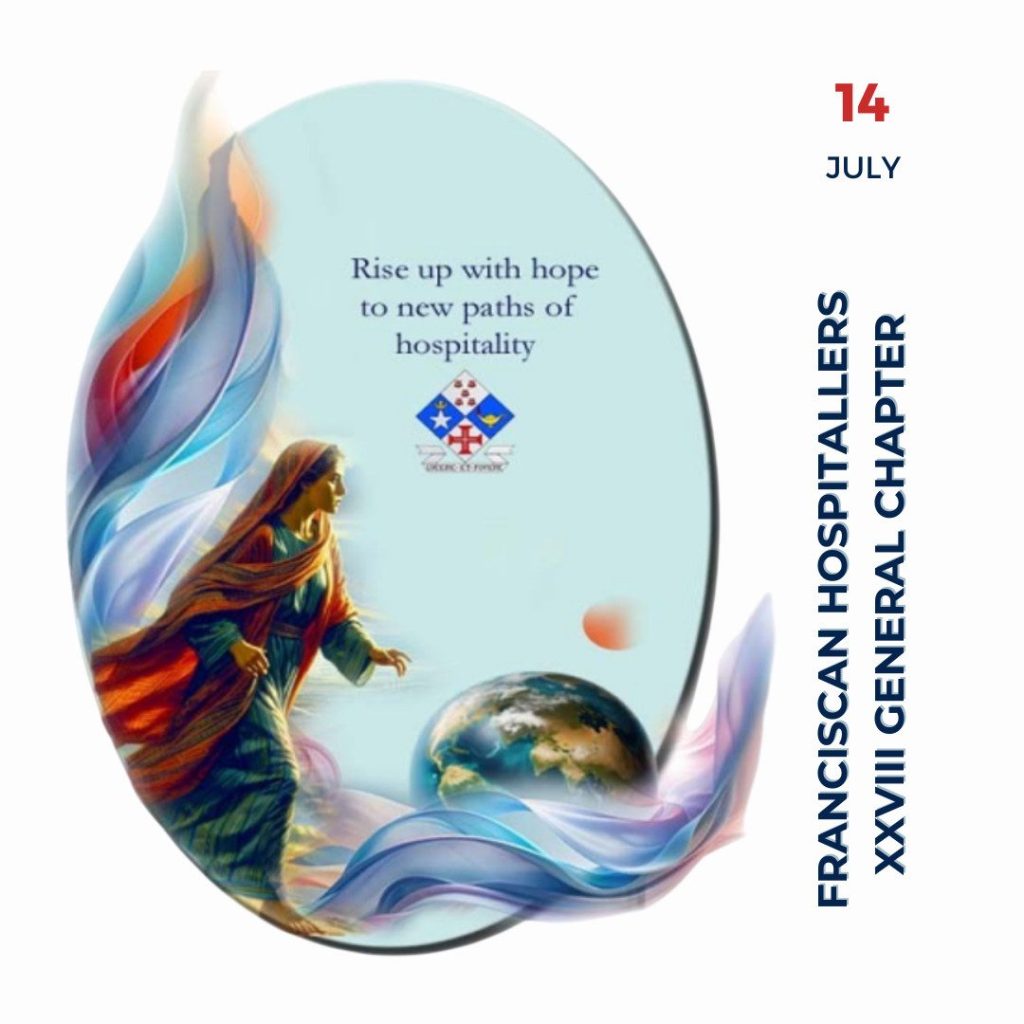


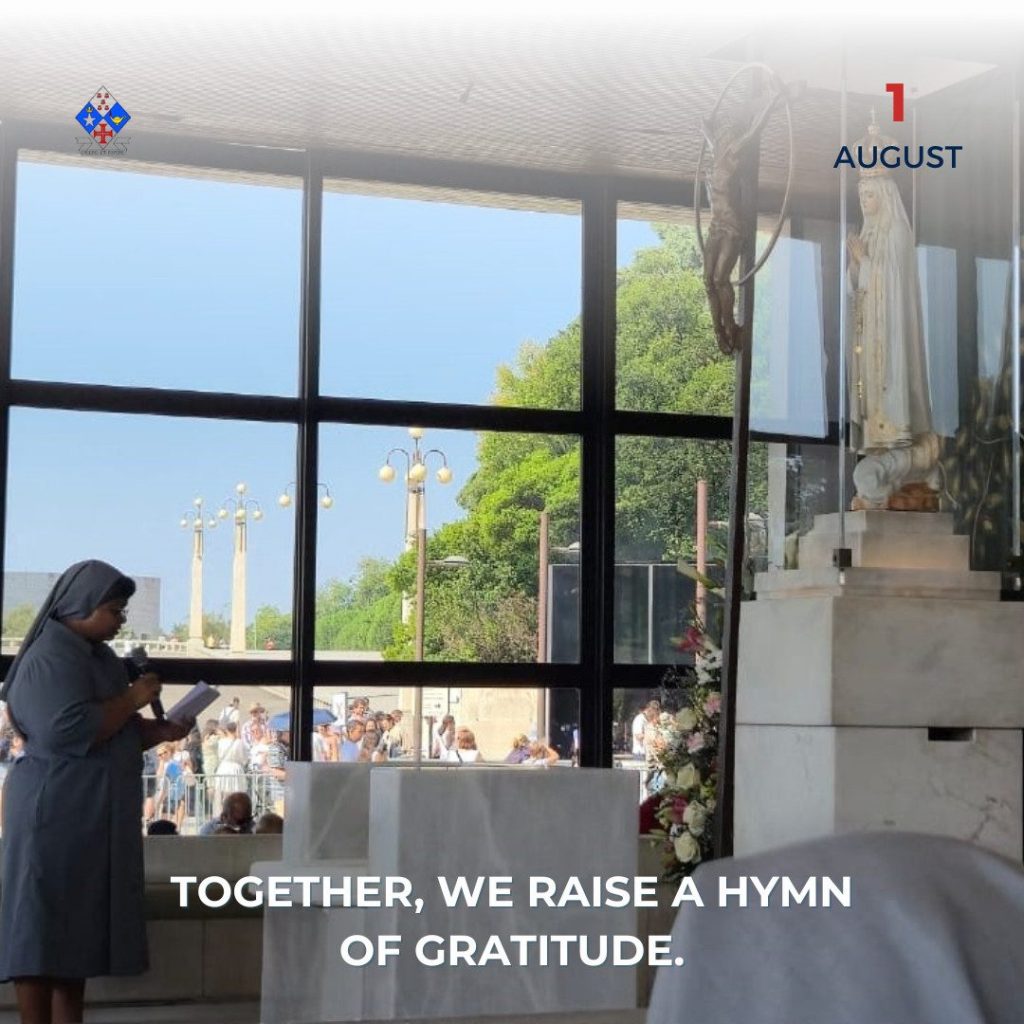
To be anointed by the Holy Spirit, means that Christ continues to move through many places, driven precisely by the Holy Spirit. This Spirit is one of peace and reconciliation. It is a wonderful gift that all of us share in this Spirit, and it is beautiful to witness how the Gospel continues to be lived in our lives. Wherever a Franciscan Hospitaller Sister has been, there the Spirit of God has been as well—giving life to the Gospel in her life, and still today in yours, in many ways and through the diversity of your mission.
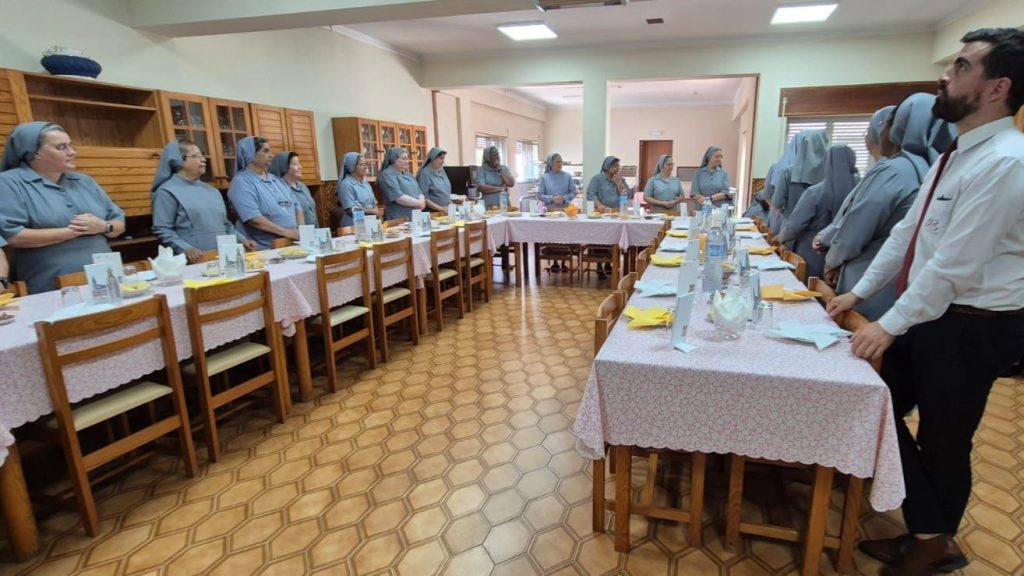
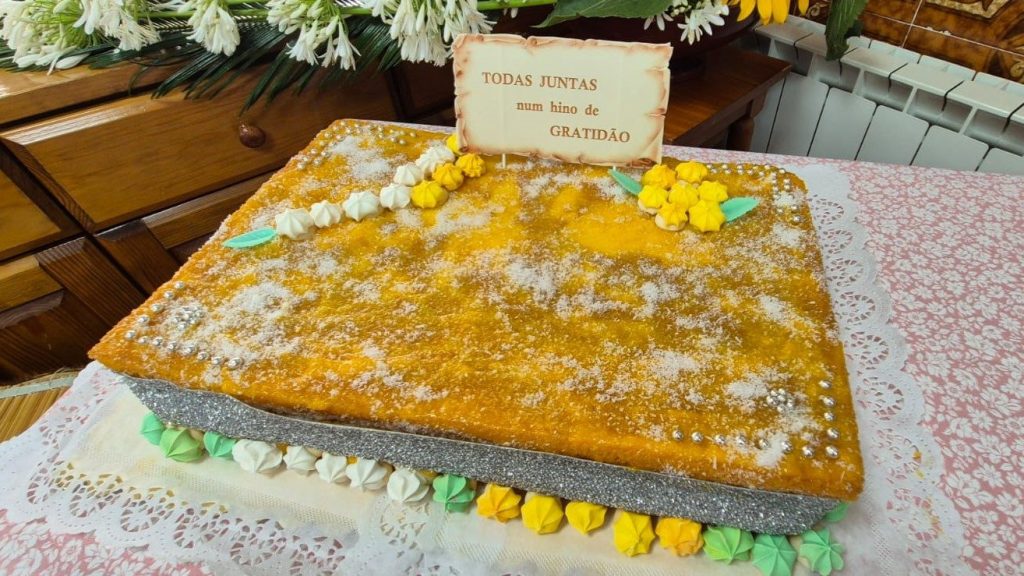
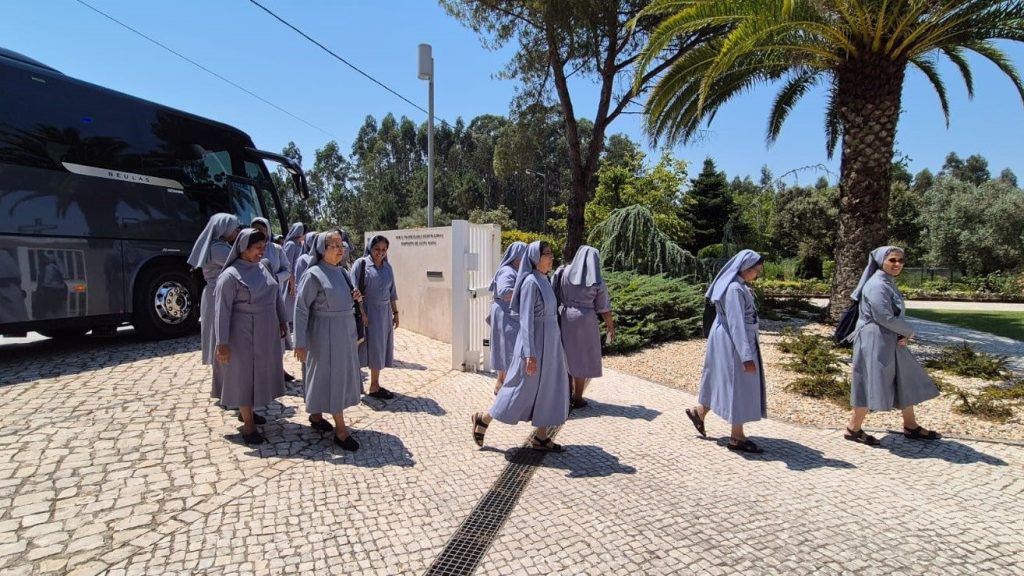
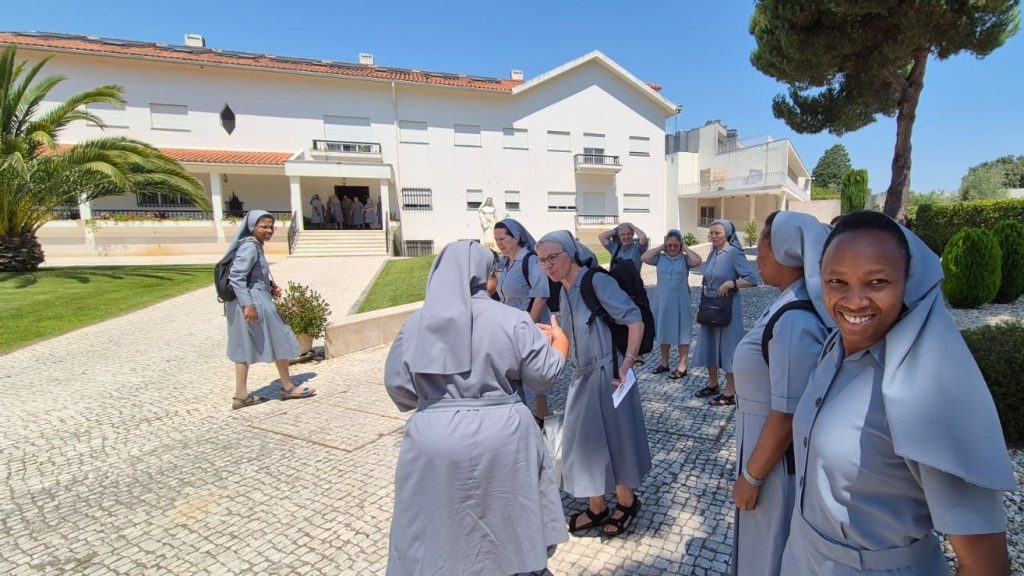
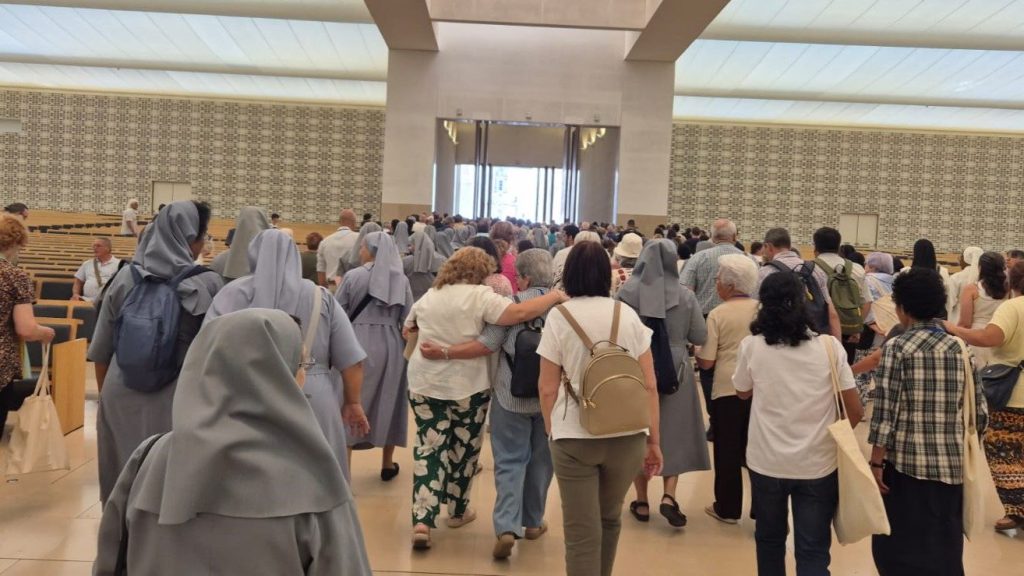
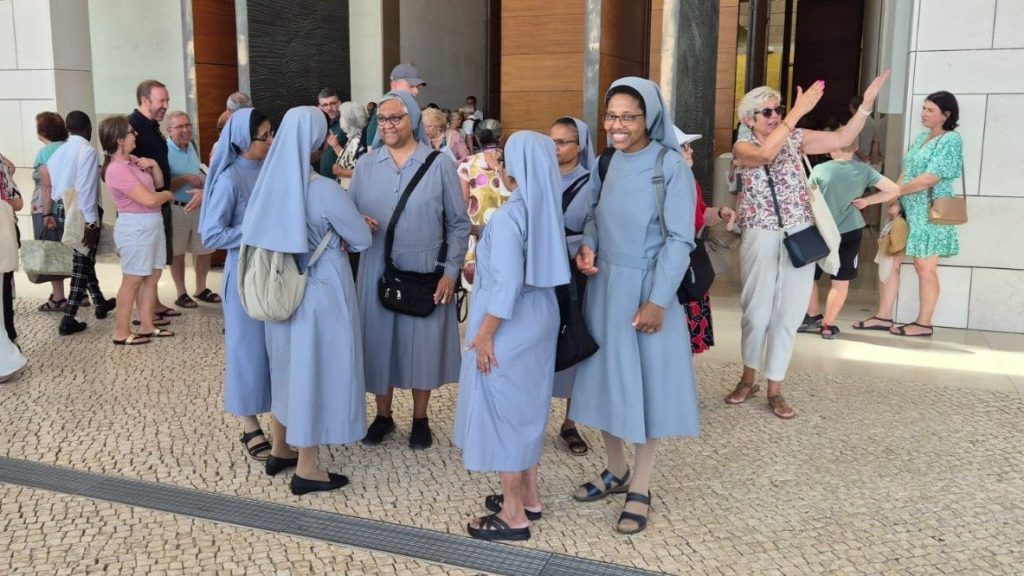
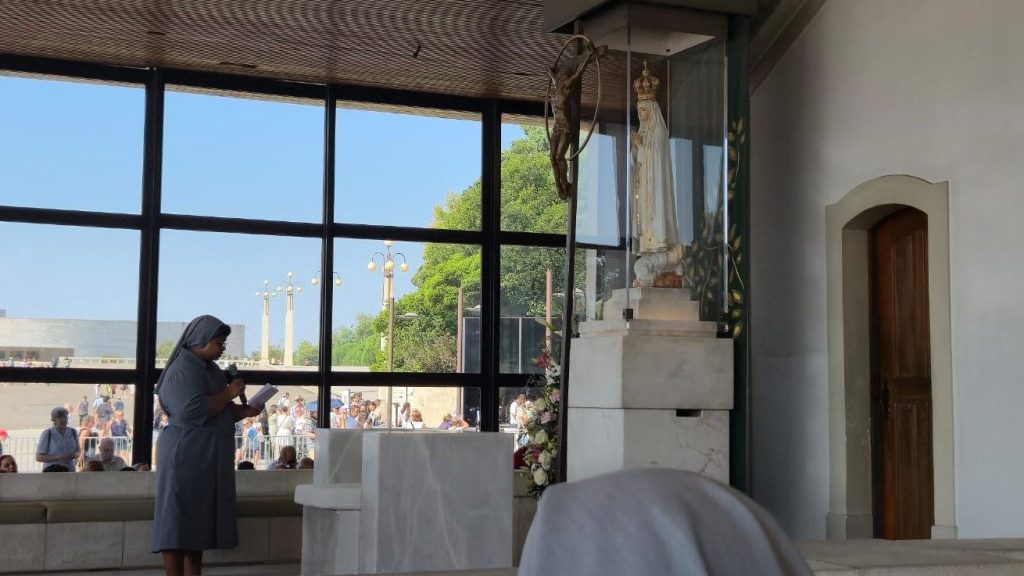
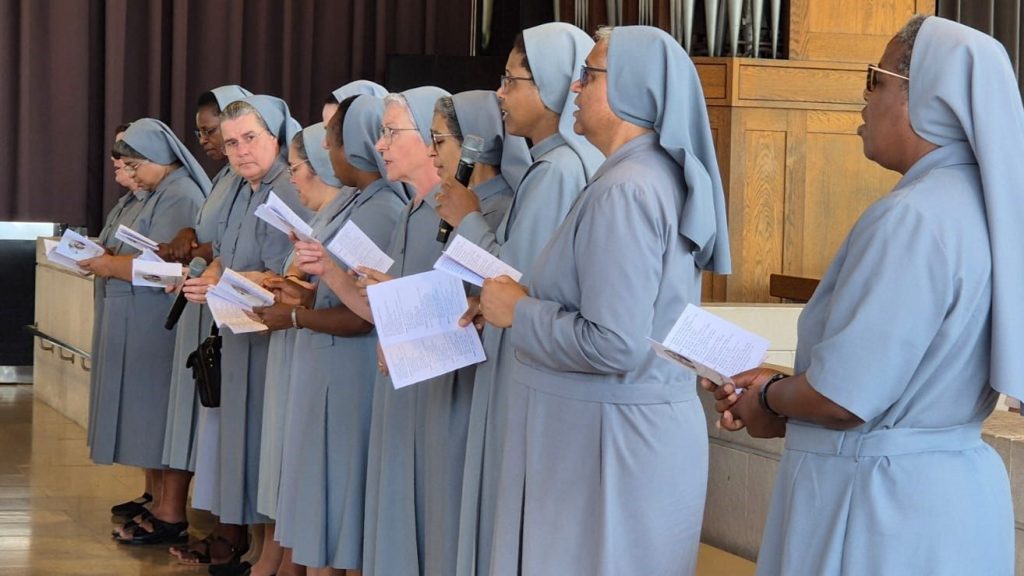
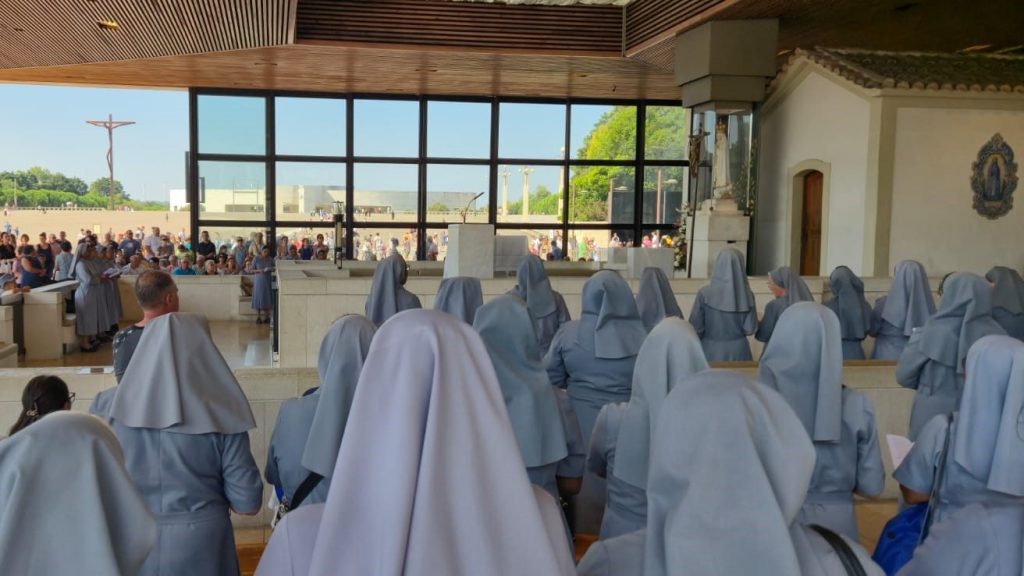
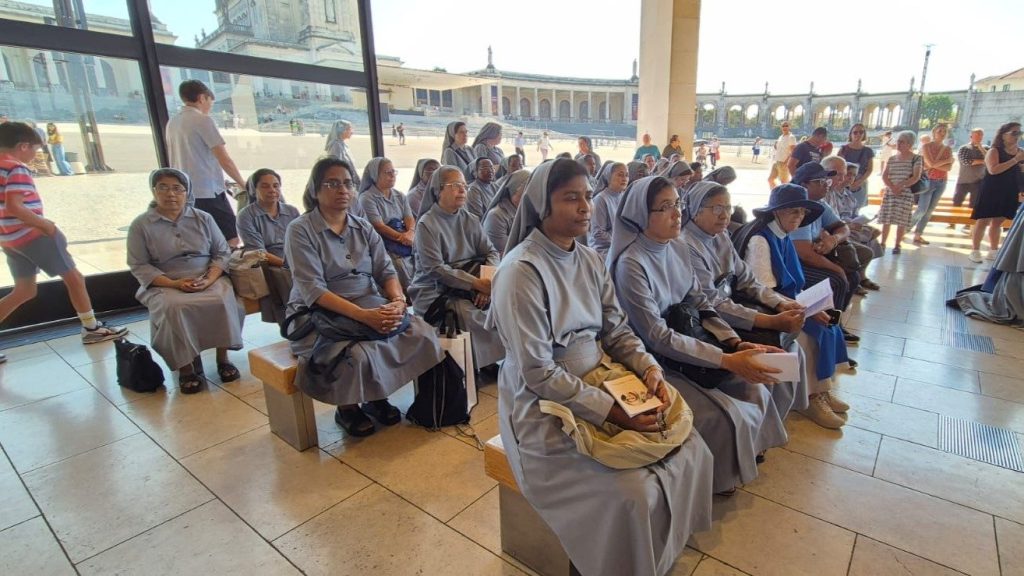
General Government for the six-year term 2025–2031
Superior General – Sister Shirley Ninfa Fernandes
1st Councillor and Assistant General – Sr. Leopoldina Marina Perpétua Carma de Miranda
2nd Councillor – Sr. Palmira Fernandes Nguetsa
3rd Councillor – Sr. Rozely Cândida da Silva
4th Councillor – Sr. Glória de Jesus Domingues
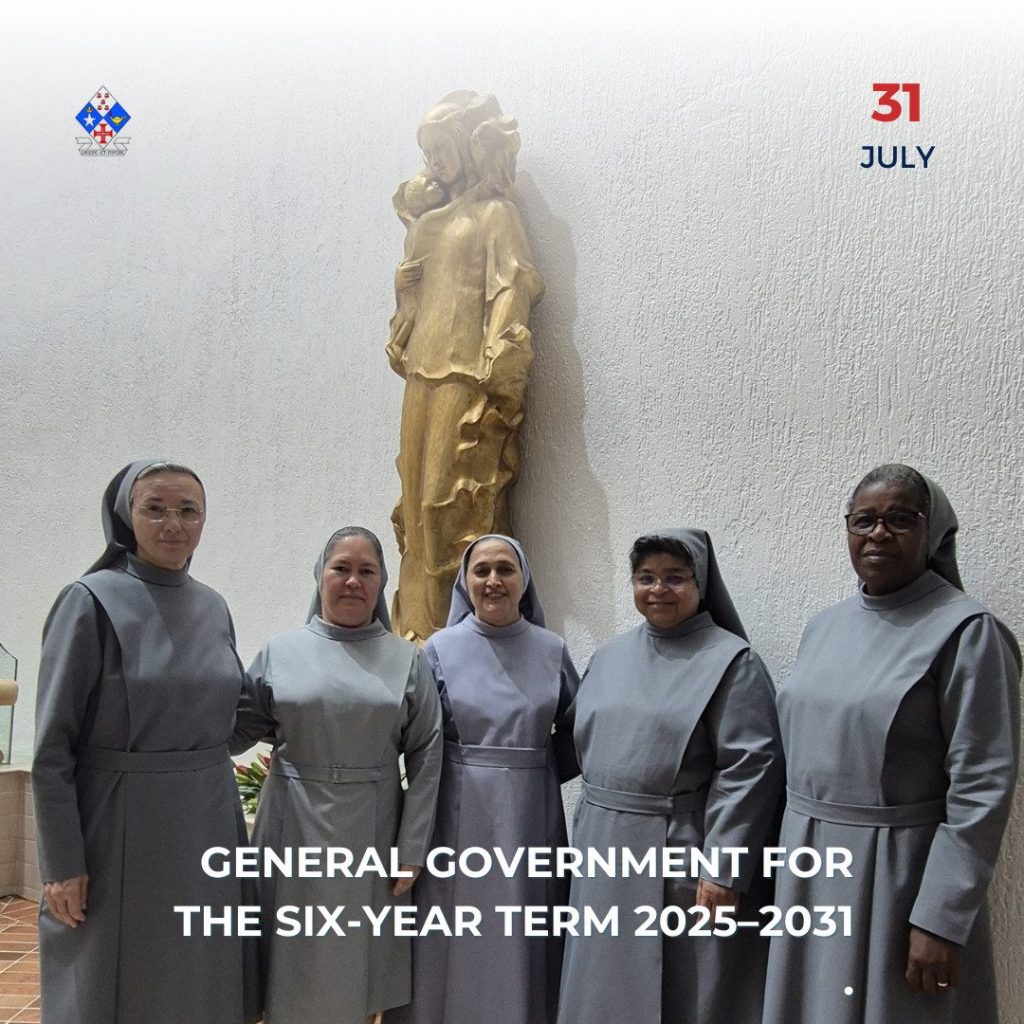

Sister Shirley Ninfa Fernandes
Elected Superior General on 30.07.2025, for the six-year term 2025–2031
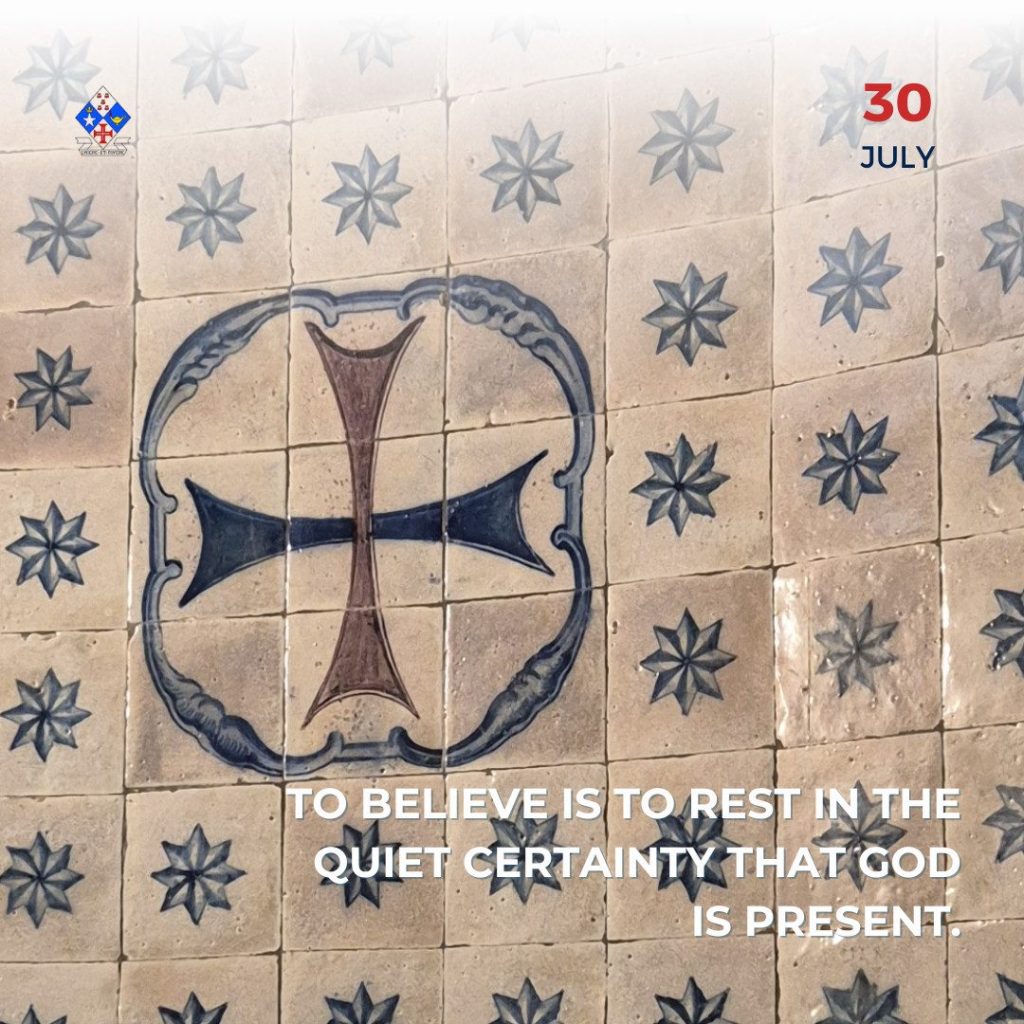
Looking at the three siblings of Bethany, with whom Jesus had a strong friendship, we can draw two key insights: the Lord unites us and gathers us together. Yet, at times, we fail to express gestures of friendship, closeness, reconciliation, and forgiveness. It is the Lord who gathers and sends us. We must remember that the Lord is greater—it is He who chooses and sends—but these gestures must take concrete form in our lives. Mary of Bethany’s prayerful attitude is appreciated by Jesus because it is the right one: to be in the right place, listening to the Lord, in order to live His word. To Martha, who goes out to meet Him and enters into dialogue, Jesus says: “I am the Resurrection and the Life.
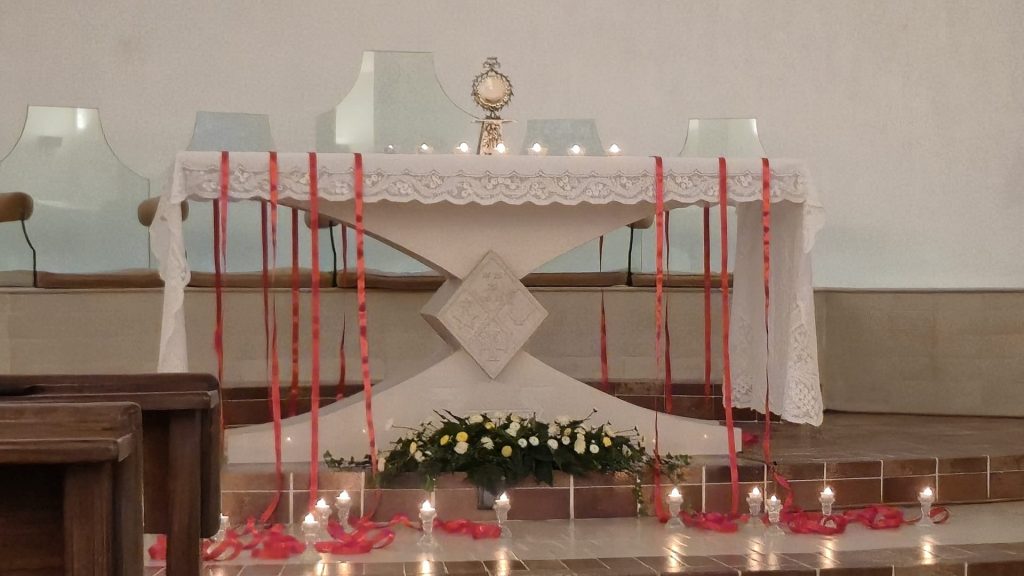

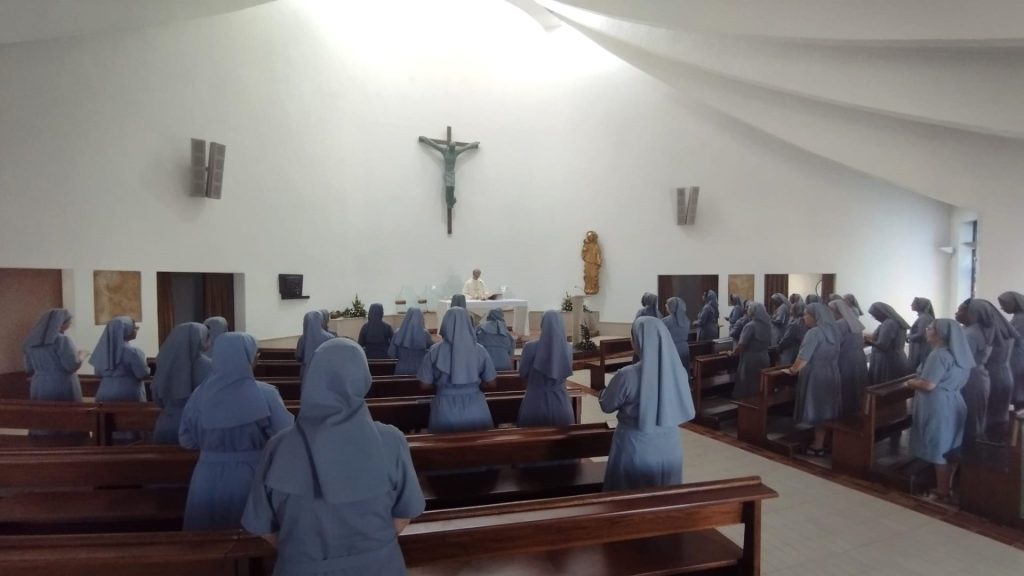
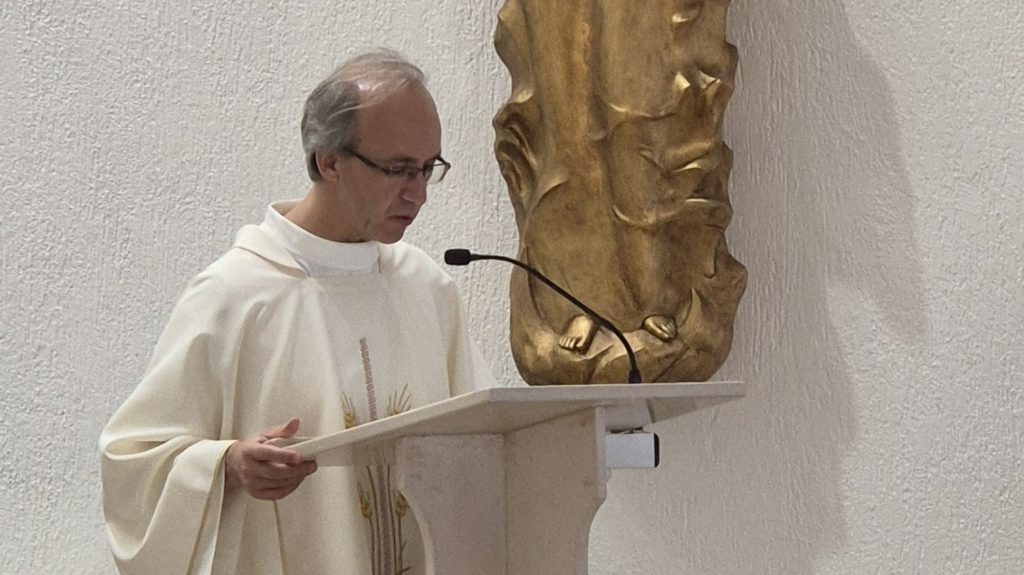
Trinas Convent
In this place that bears witness to the growth and expansion of the CONFHIC, we recall the unfathomable designs of God, the prophetic call to interculturality, and the first challenge to go forth to envision and embrace new mission territories. Here, the first hospitaller hearts were formed bold and creative, to care for and promote the tender mercy of our good God for His people.
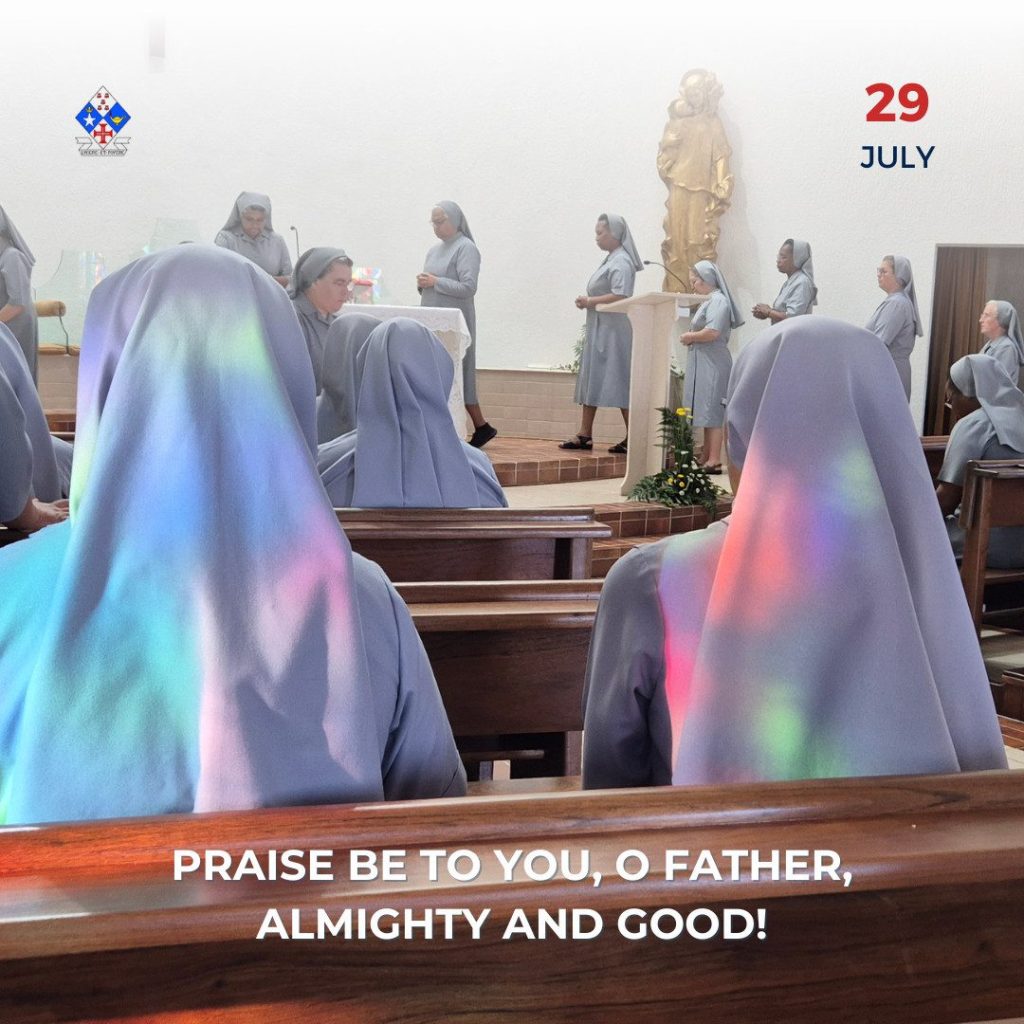
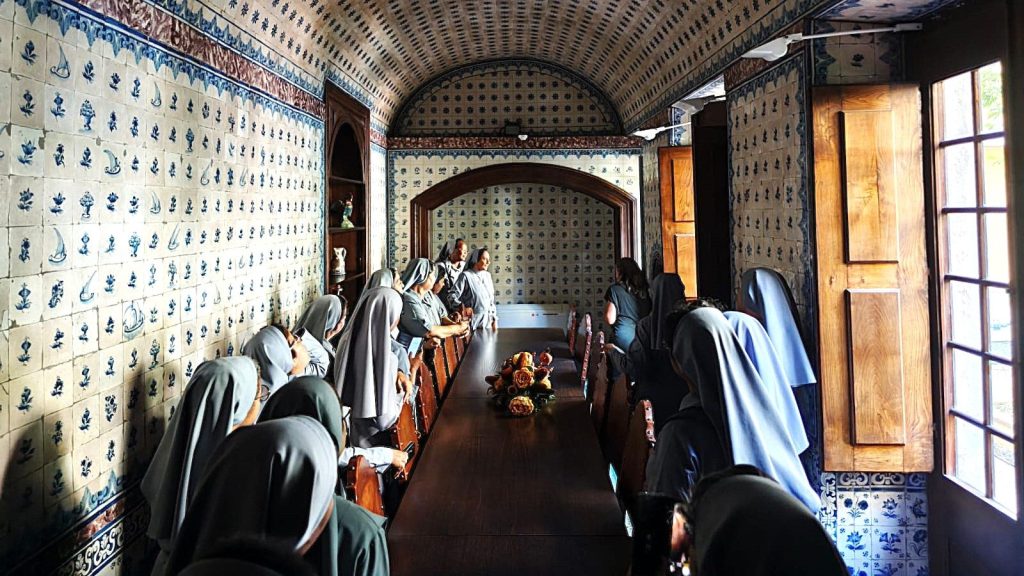
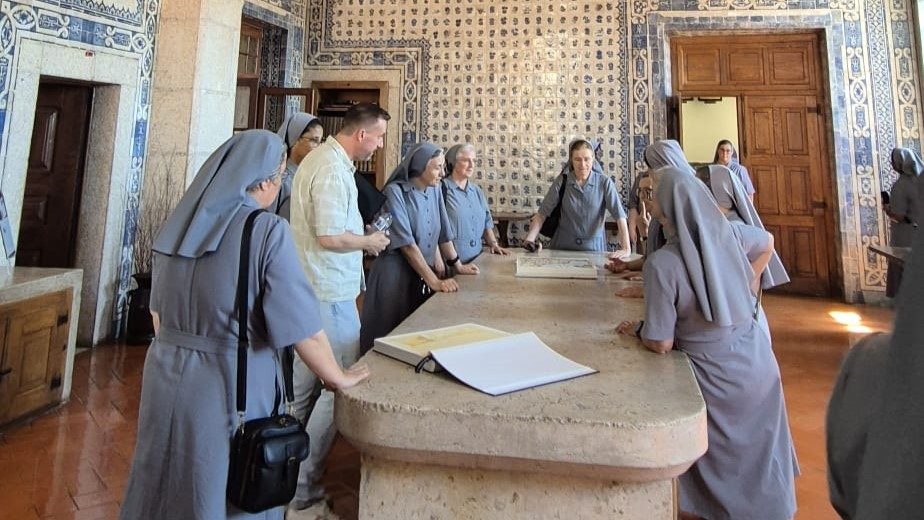
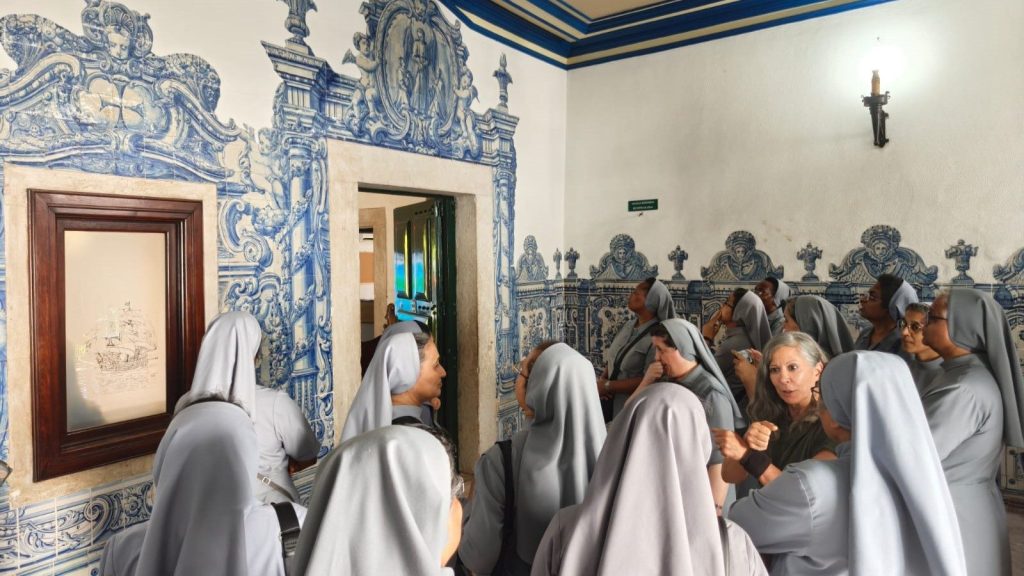
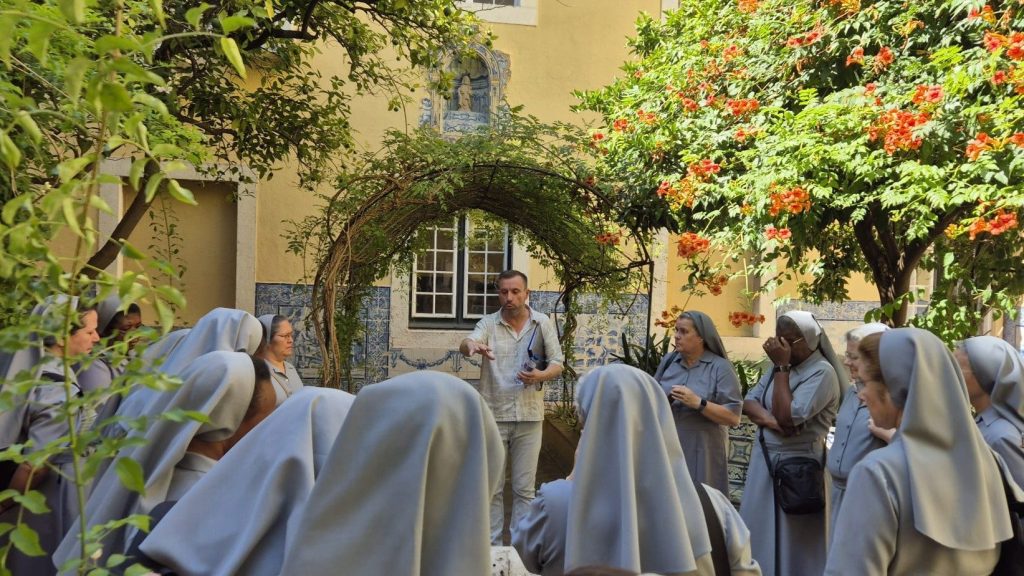
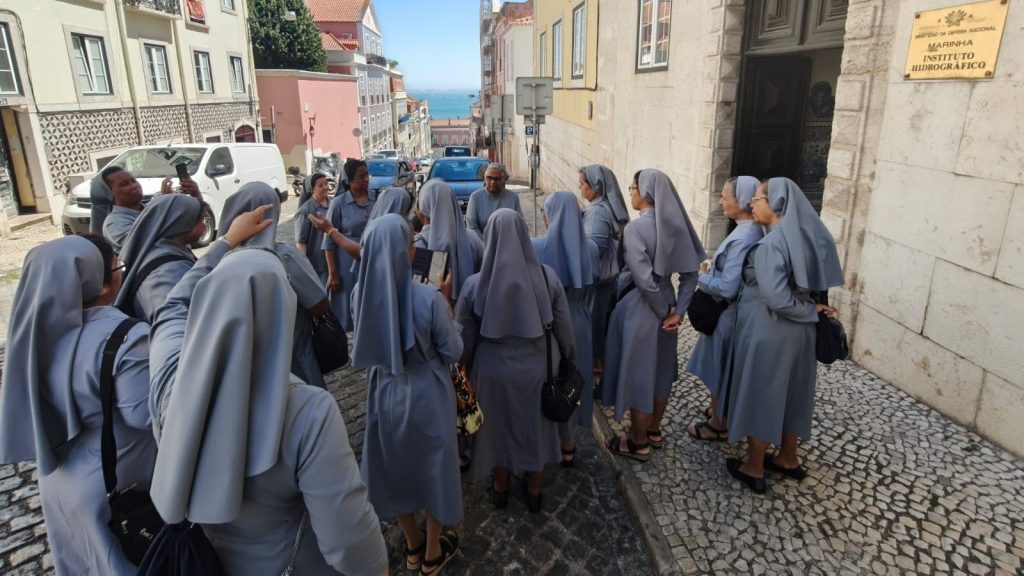
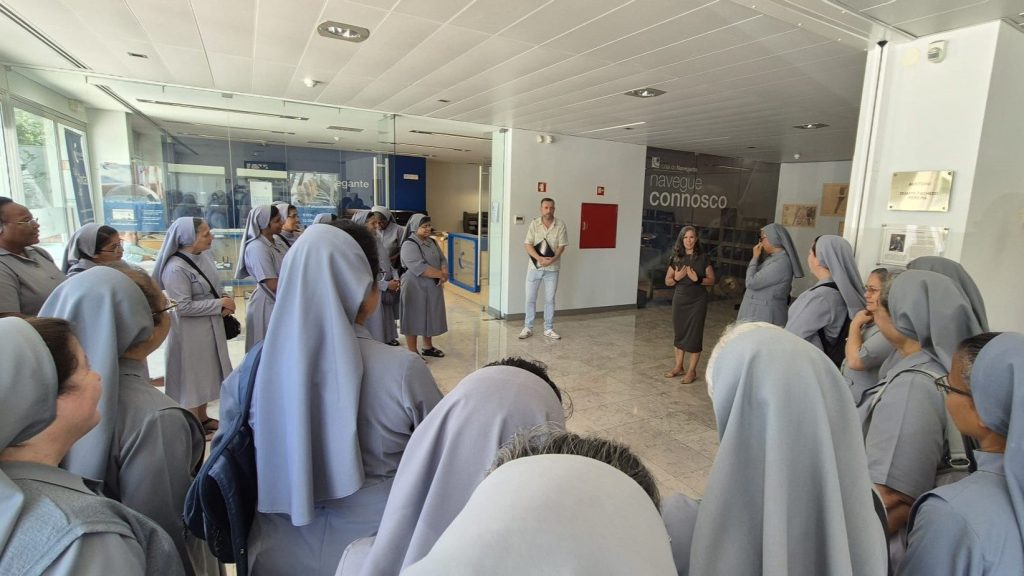
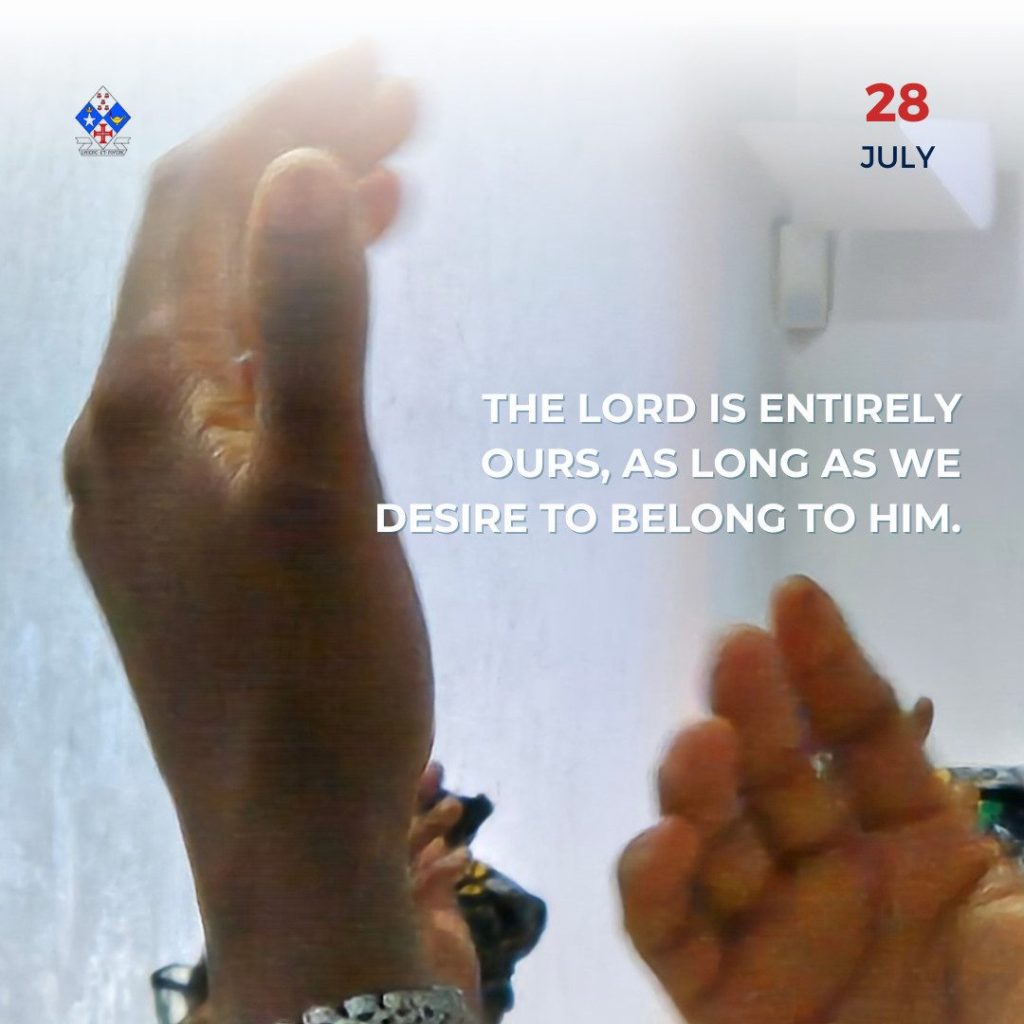
The need to learn how to pray arises from witnessing others. Jesus withdraws to be with the Father. This attitude catches the attention of the apostles because they see it aligns with what they know of Jesus—through His life and mission. This becomes a fundamental attitude for anyone who wants to follow Him.
To what extent, in our own lives and prayer, do we inspire the desire and the need to pray? Prayer is not a magic formula; it is a reality that needs to be nurtured, repeated, and made evident in the life of the one who prays. It requires maintaining a frequent dialogue with the One to whom the prayer is addressed.



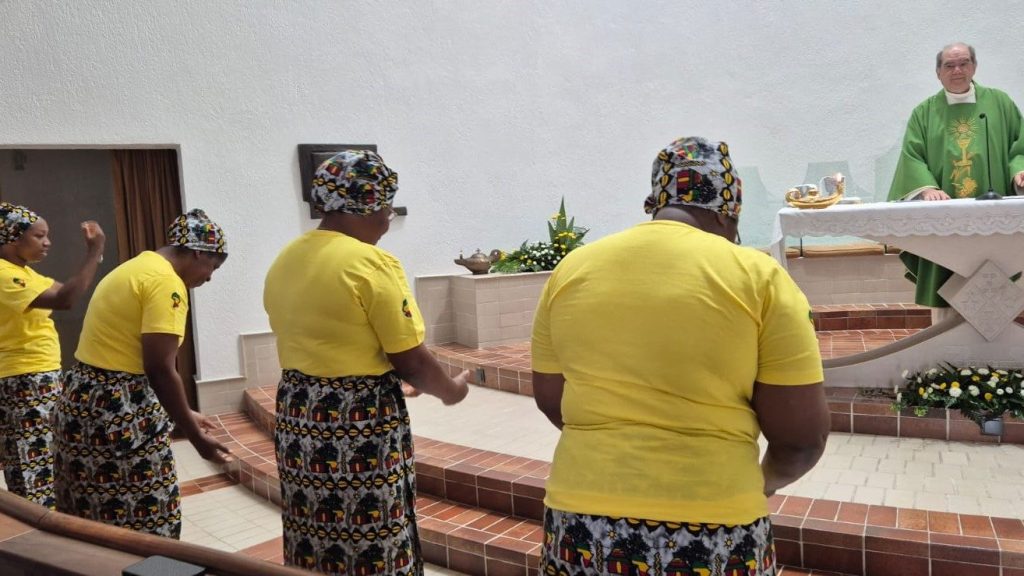
As we celebrate the liturgical memorial of Saints Joachim and Anne, even though the Gospel does not mention them—just as it remains silent about Saint Joseph in many instances—it is interesting to reflect on how they might have responded to the newness, the doubts, the mystery, the proposals of God, and the people around them. They trusted in the Word of God.Throughout His ministry, the Lord Jesus often said: “Do not be afraid, for I am with you.” If God is with you, who can be against you?May we too be able to live according to the faith that teaches us to wait with hope, to discern wheat from weeds, truth from falsehood—both within ourselves and in the contexts to which we are sent.

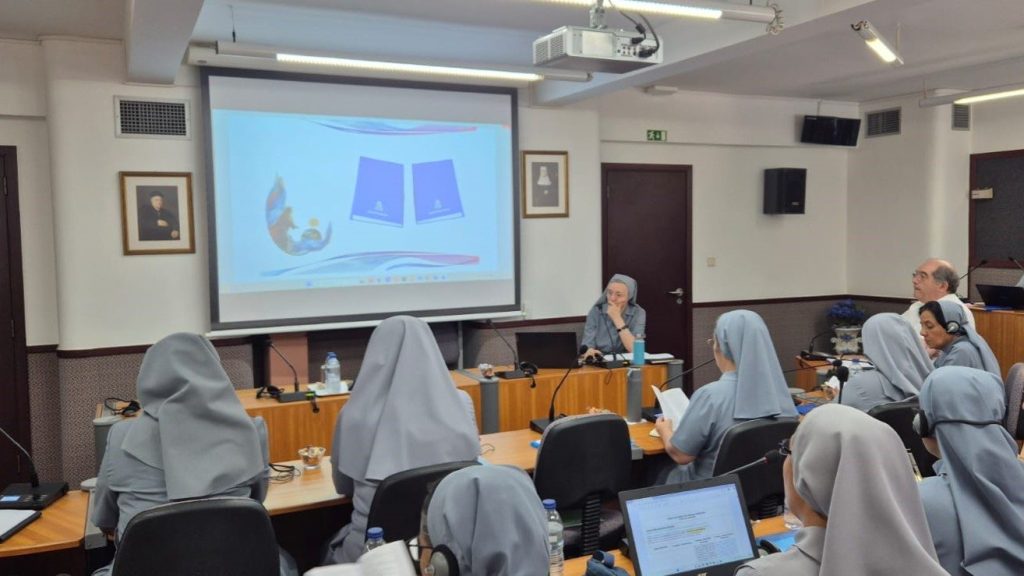
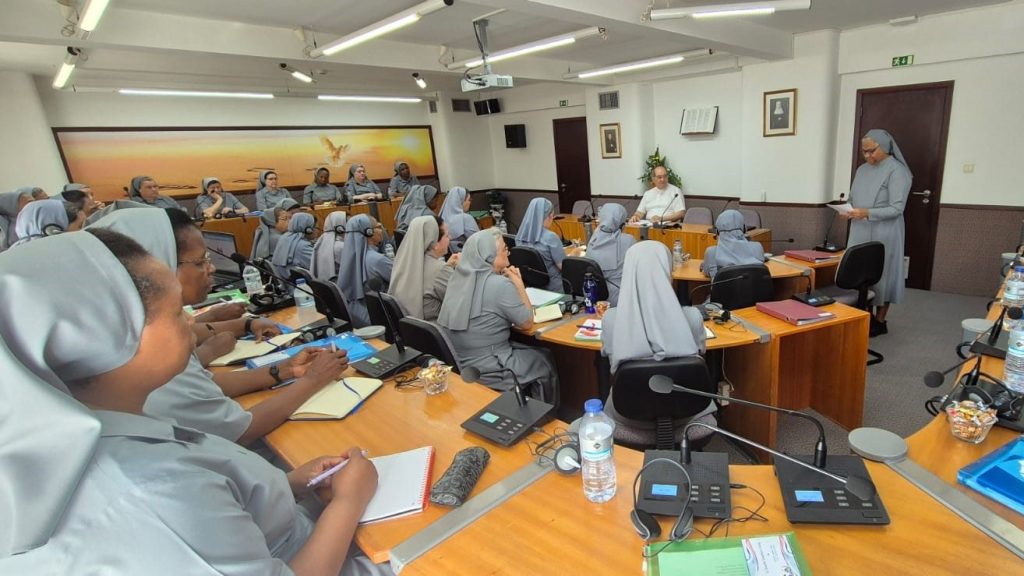
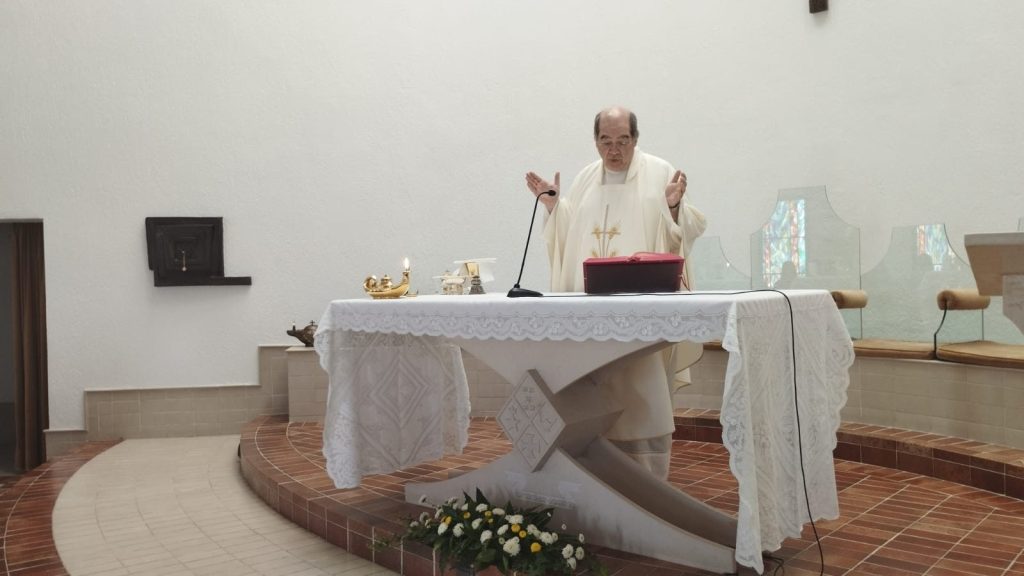
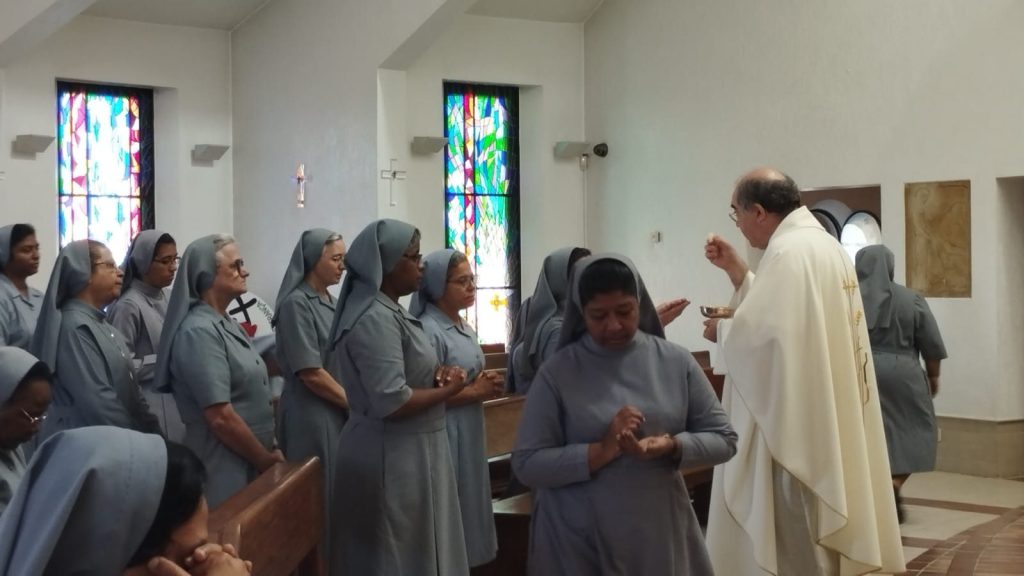
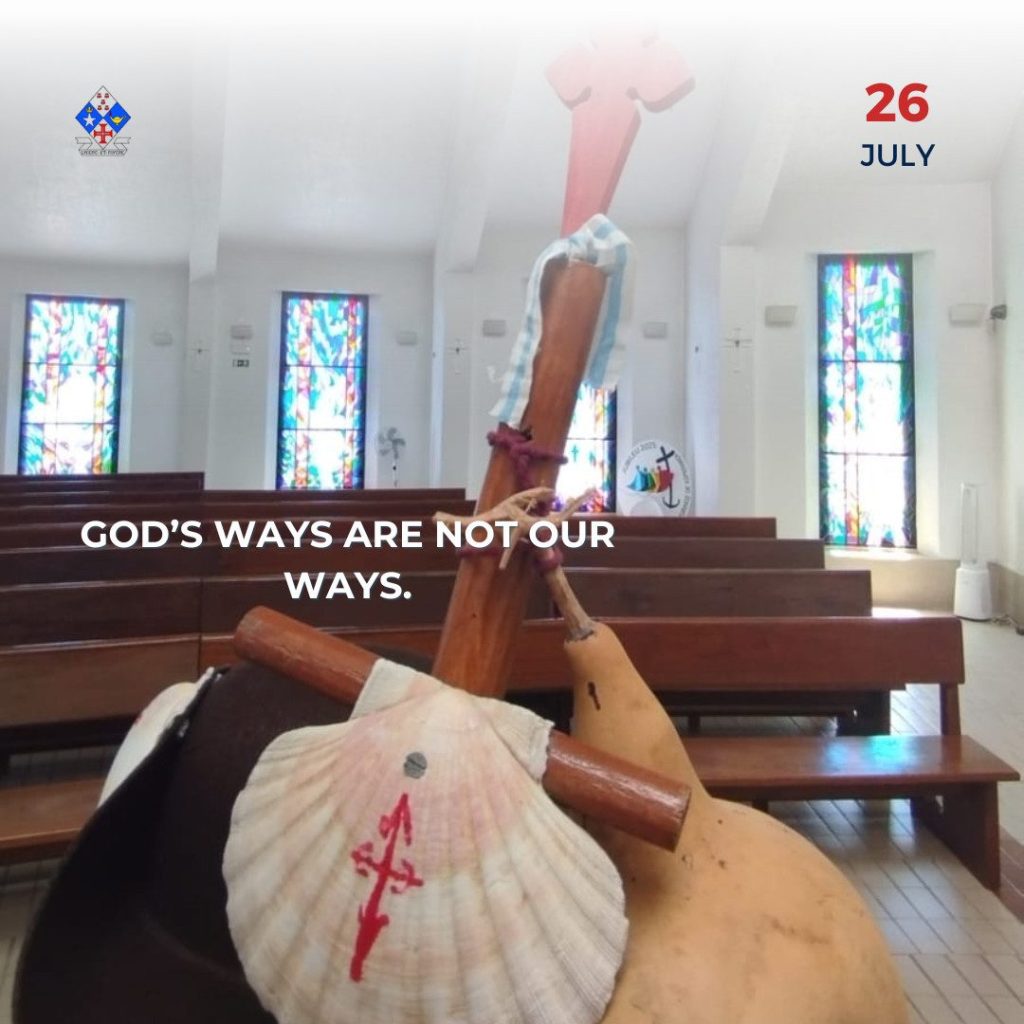
Our own life is a life of faith. We will encounter trials and tribulations, but we must remember that the grace of God sustains us through every challenge. To embrace our faith means to walk through life’s uncertainties with unwavering trust in the One who has called us. The signs of the times show us that God’s ways are not our ways. What seems strong to us is not. True strength lies in placing our weakness in the heart of God.
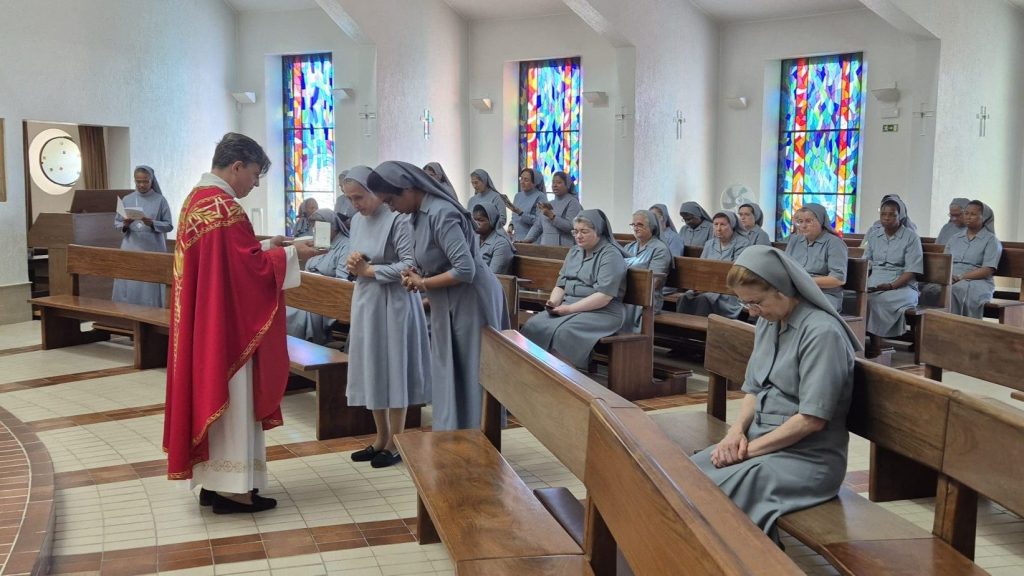
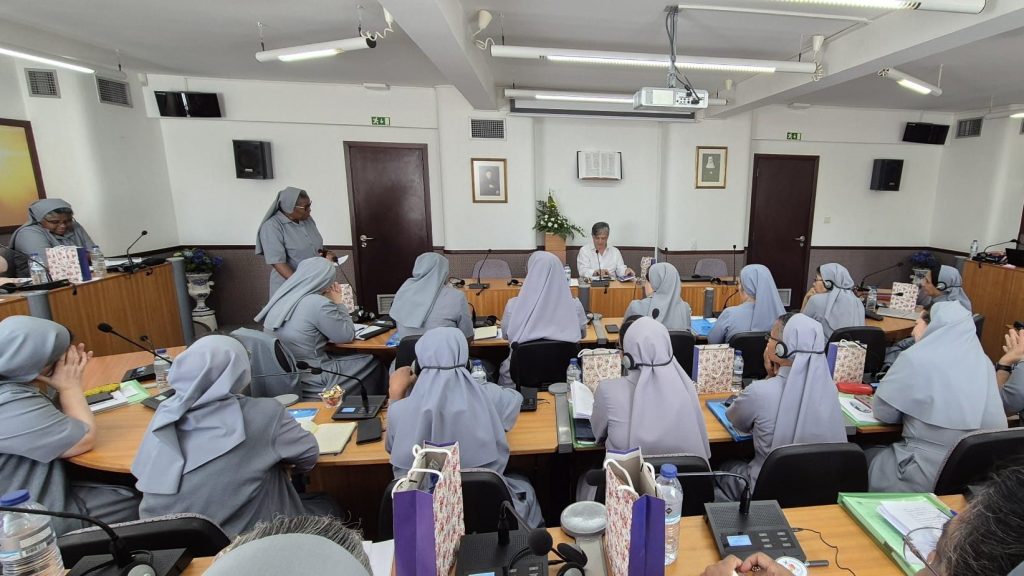
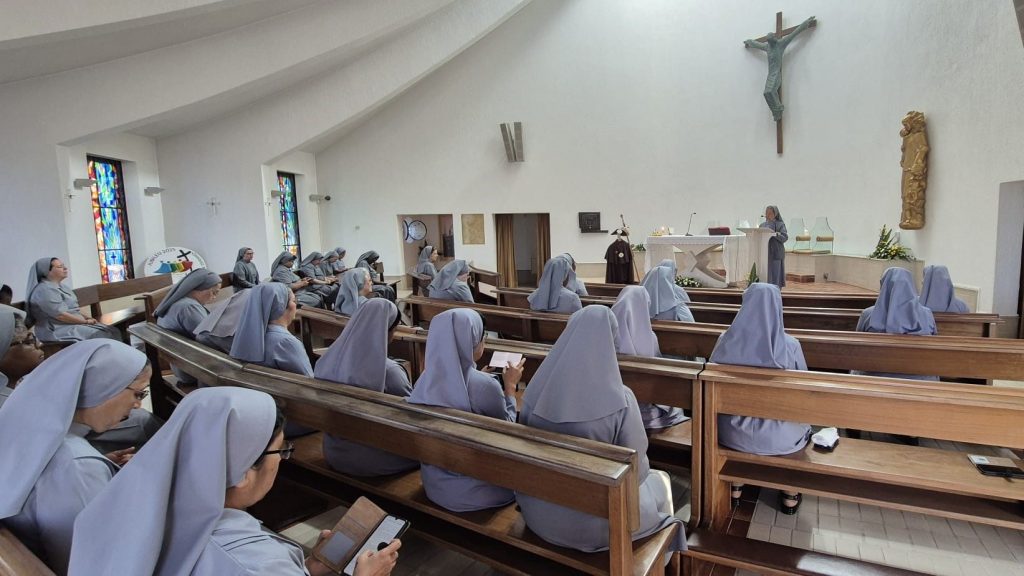
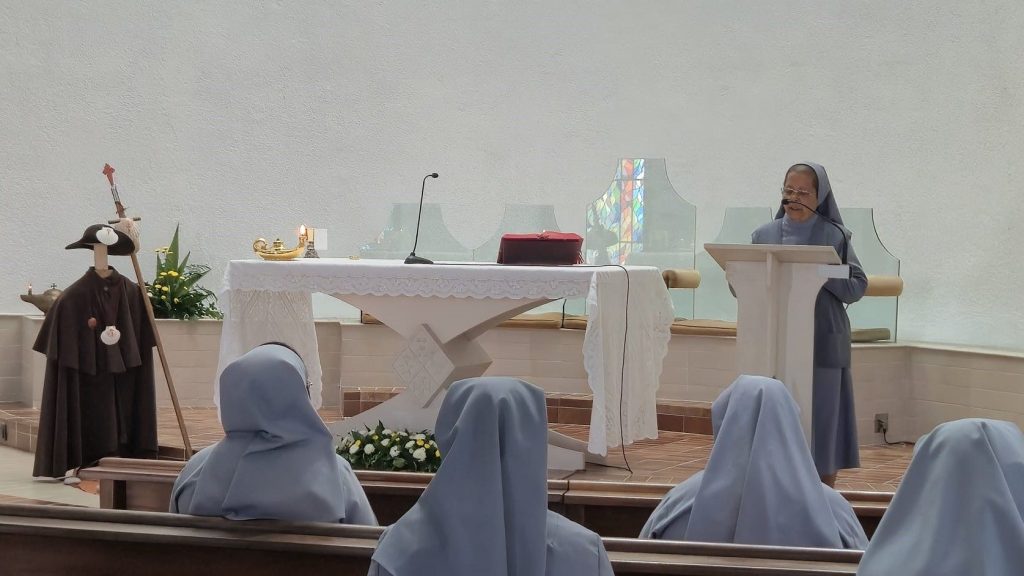
The Lord teaches us the necessary attitude for deciding the future: discernment. A renewed life cannot be born from our own calculations or efforts, but only from God. And for this to happen, we must do it together. It requires the pedagogy of simplicity and humility.
The Word of God reveals itself in a pure heart, in ears that are open, and in eyes of faith. We need to listen attentively to the Word of God, free from preconceived ideas, selfishness, fears—free from all that does not belong to the Gospel. The Holy Spirit places within us the wonderful charism of hospitality. But today, new expressions are needed—new skills, new words and signs, a new way of organizing ourselves—in order to live this charism in the present times. Surely, the Lord will speak to our hearts, will convince and encourage us throughout this process.
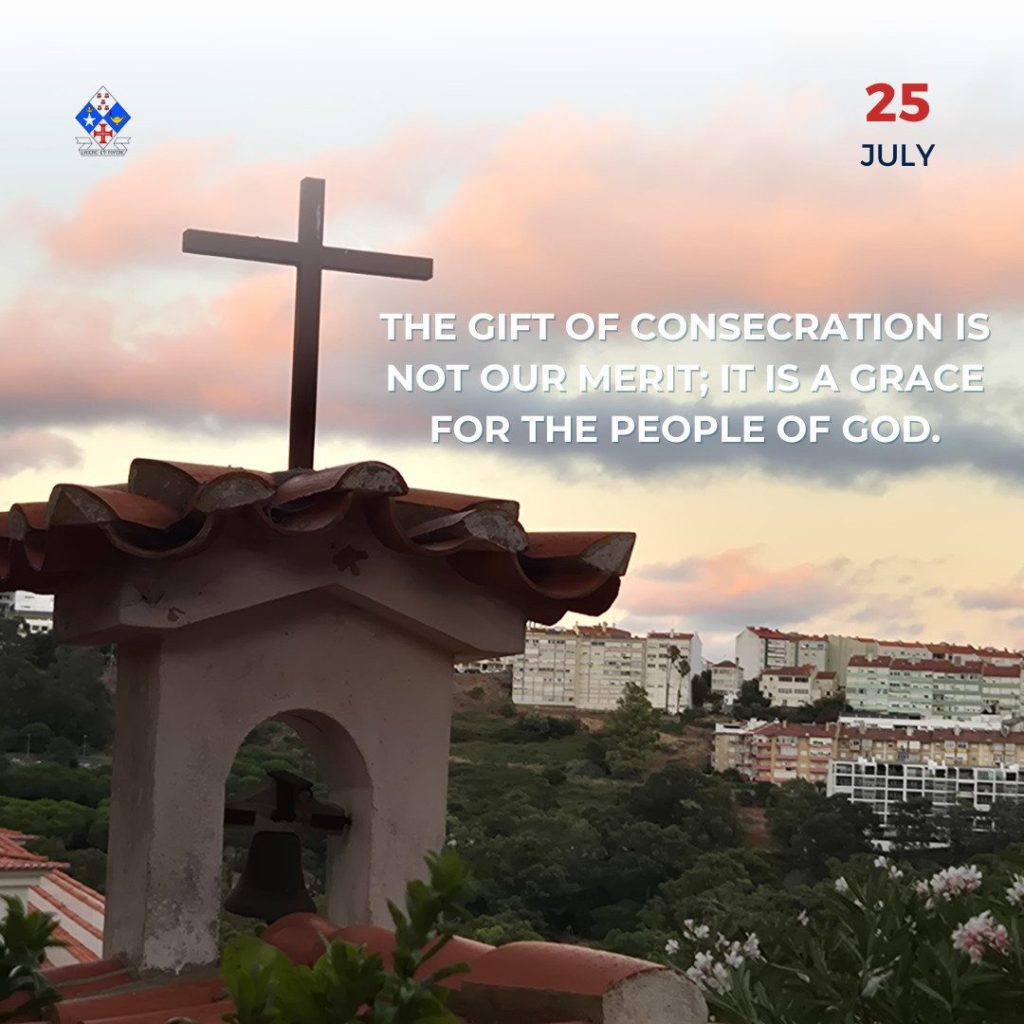
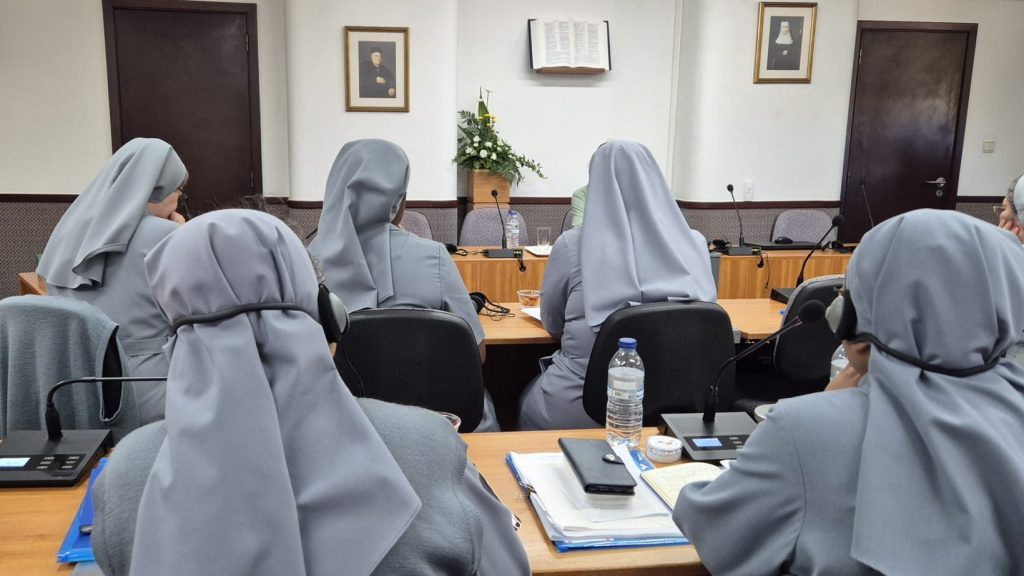
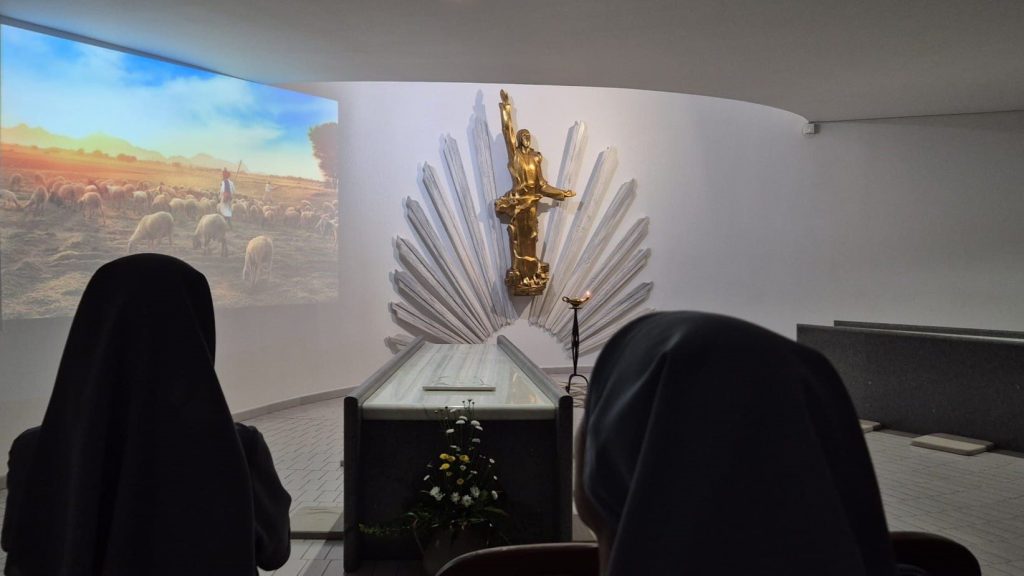
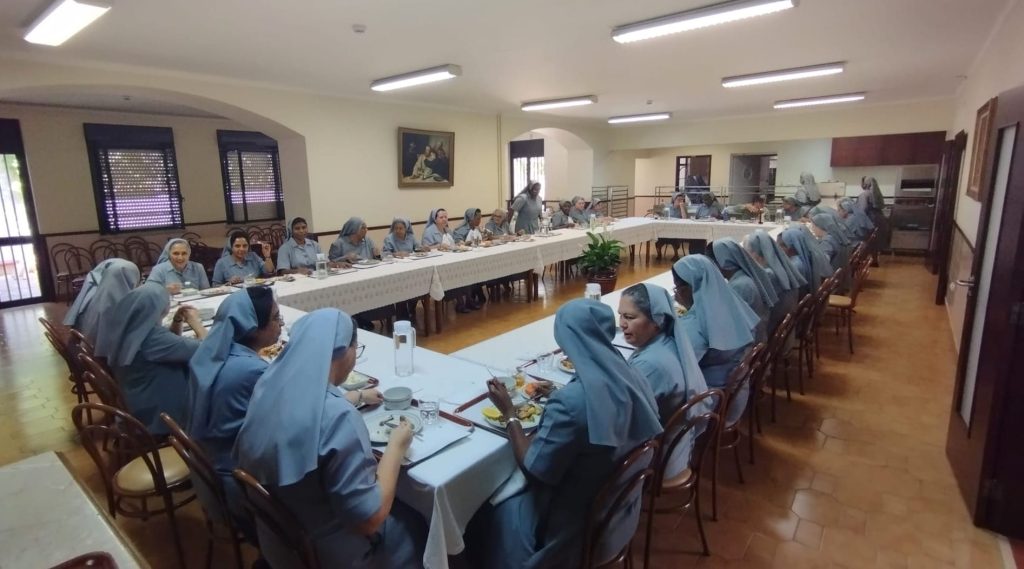
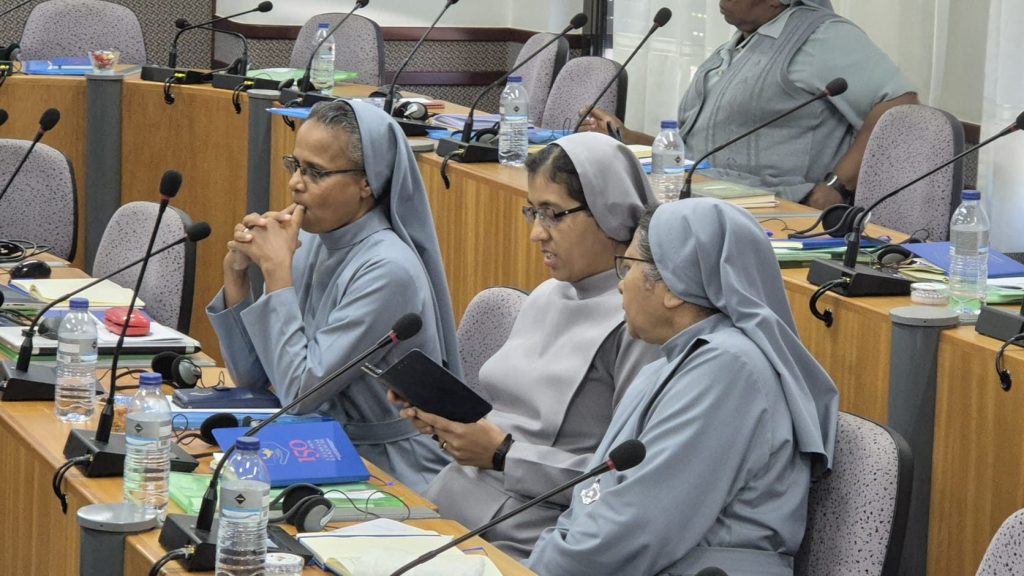
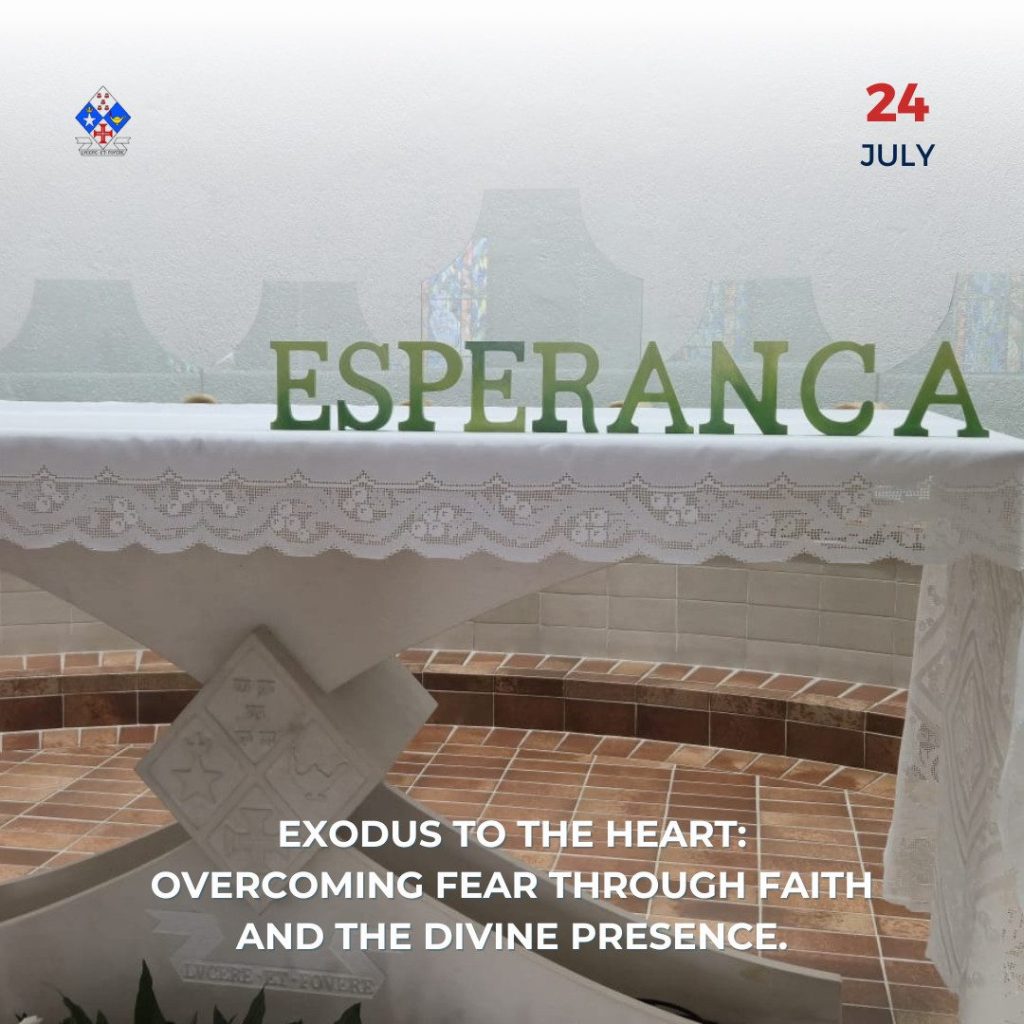
Mary Magdalene, one of Jesus’ closest friends, allowed herself to be loved and transformed by Him, becoming a new woman—the first to announce His Resurrection—thanks to His love.
Our weaknesses do not shame the Lord; they draw Him to us so that He may transform our lives.
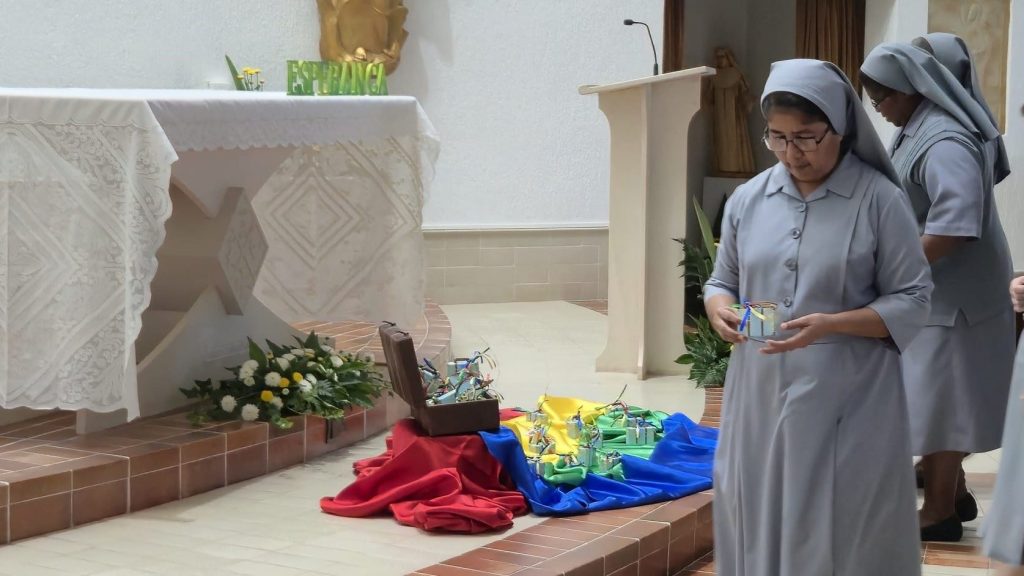
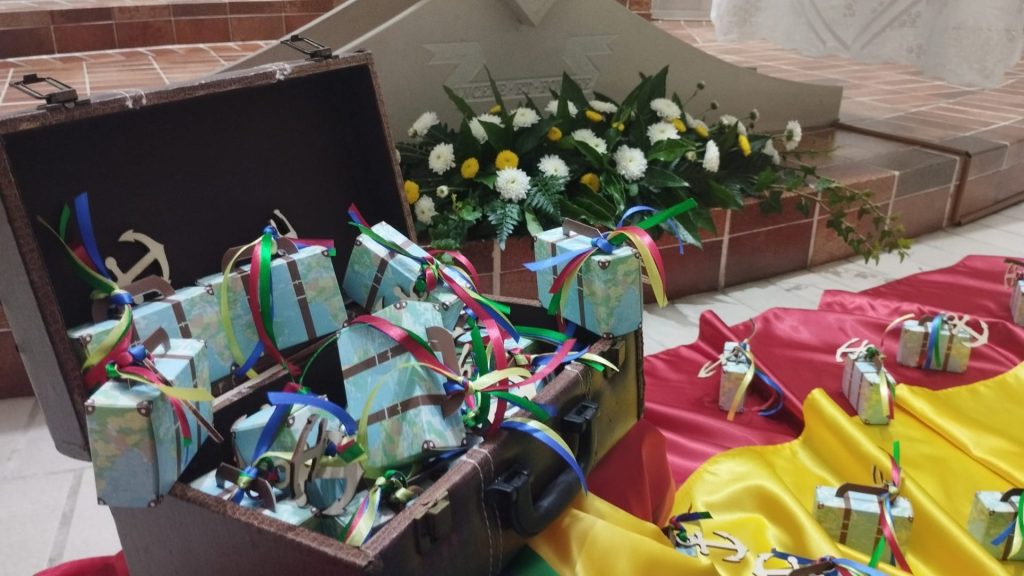
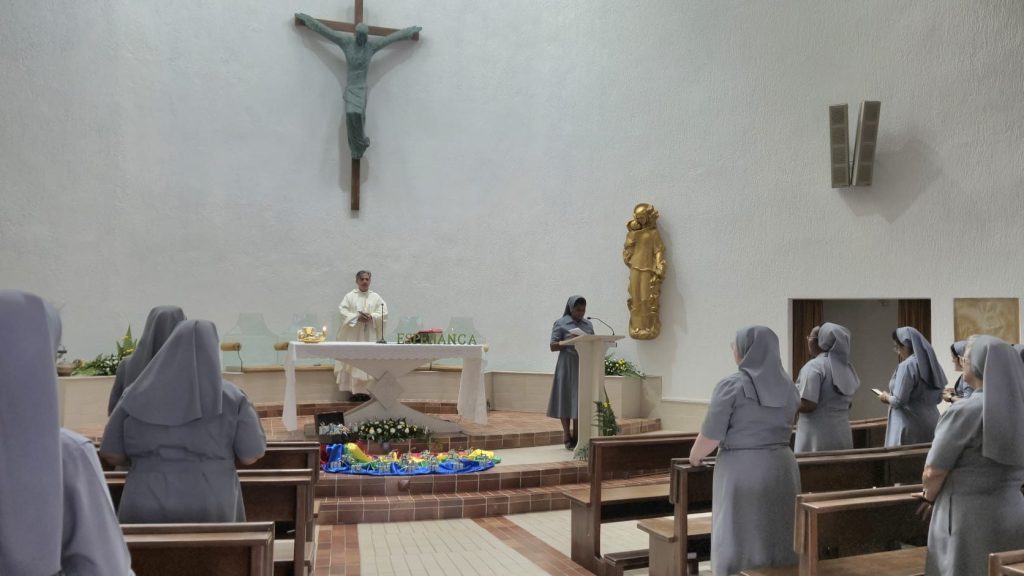
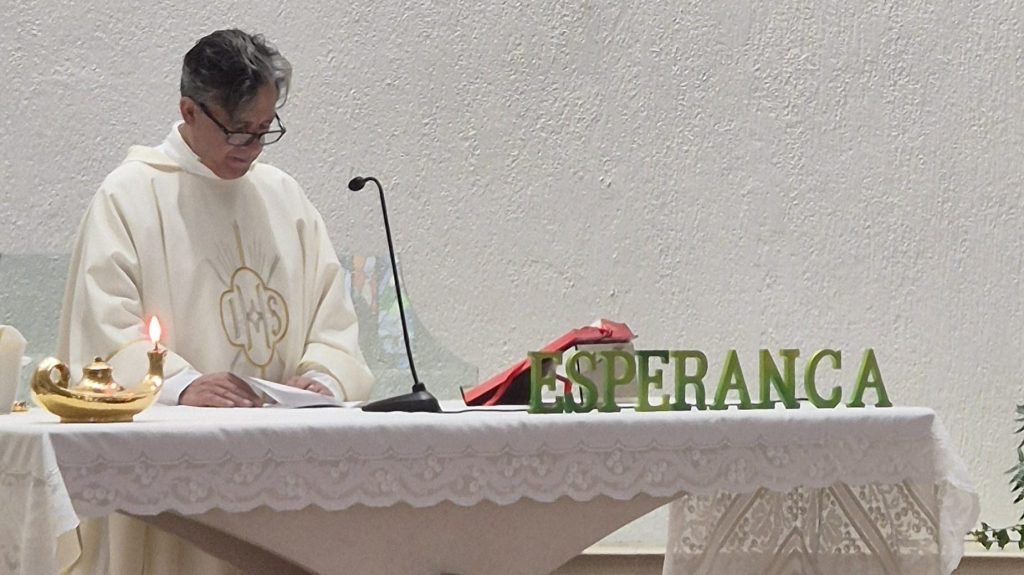

We can all draw great lessons from the journey of the people of Israel to the Promised Land. It is a metaphor for our spiritual and consecrated life. The heart of Pharaoh was changed. What have we done, we who let the people of Israel go, so that they would no longer serve us…? Let us believe that God is at work… God will do what seems impossible. His plan is greater than ours.
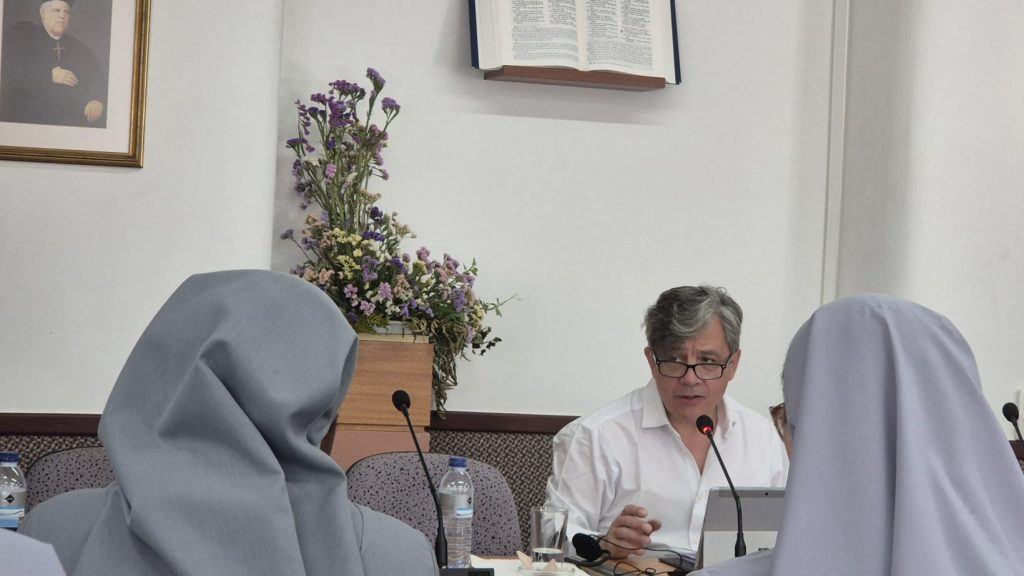
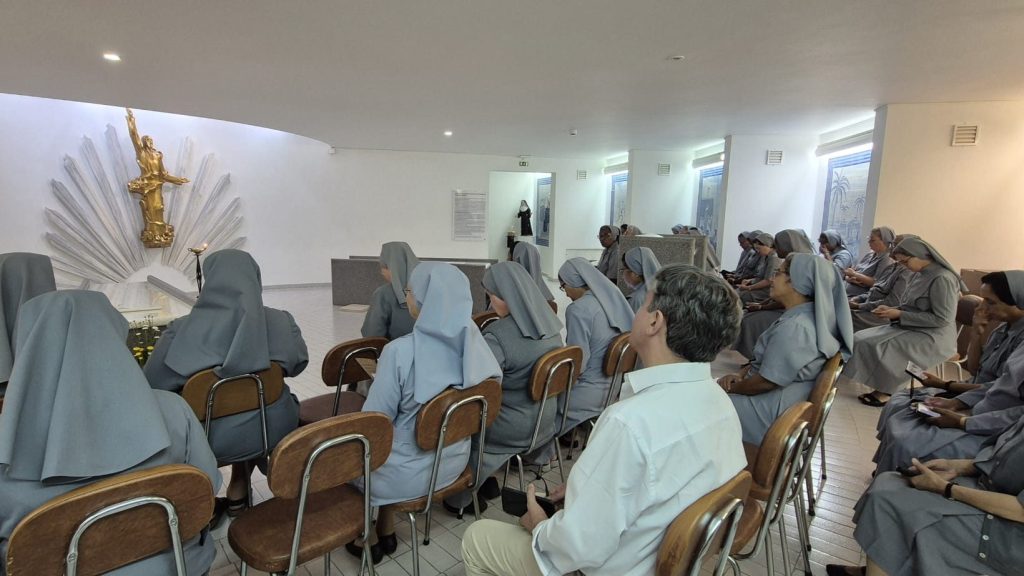
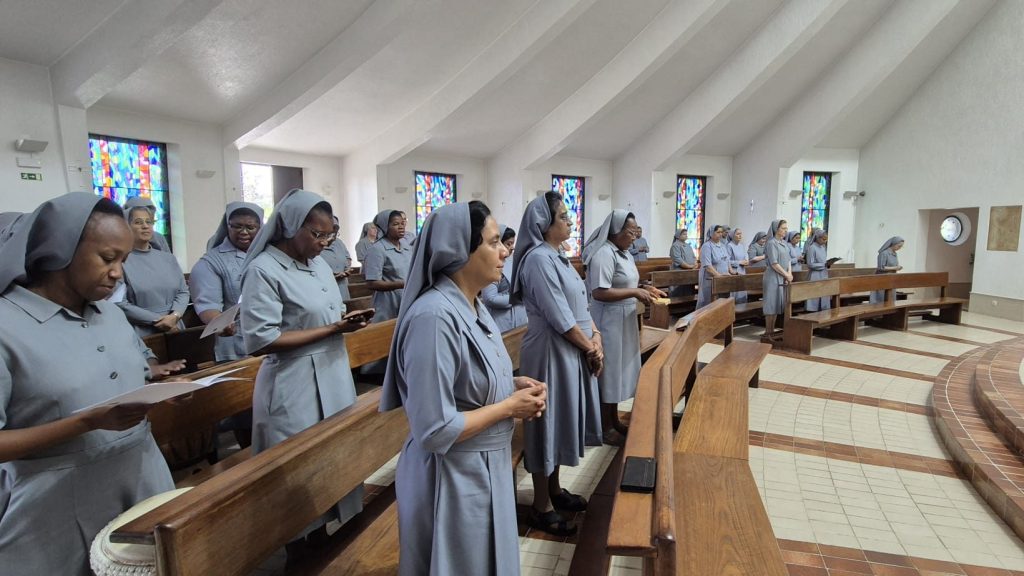
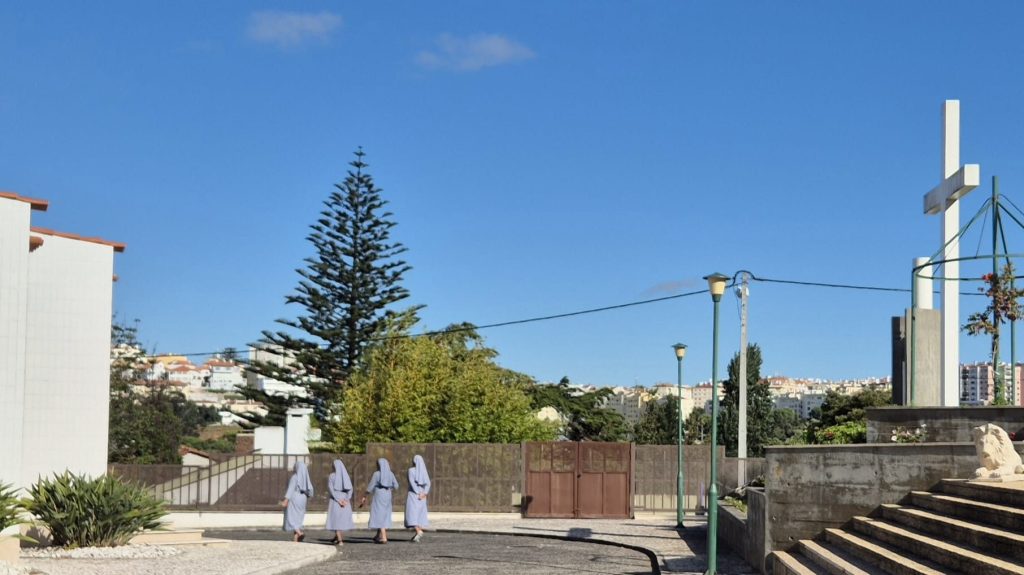
Seeing the guests, Abraham stood up, ran, and bowed at their feet, placing himself before them to ask that they stay in his home…
When love is strong, it makes them run.

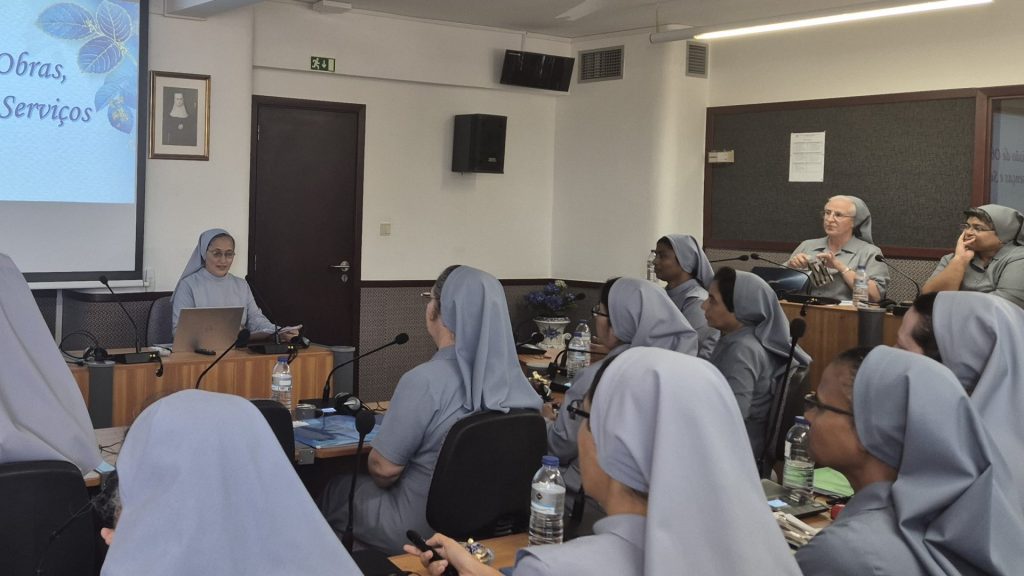
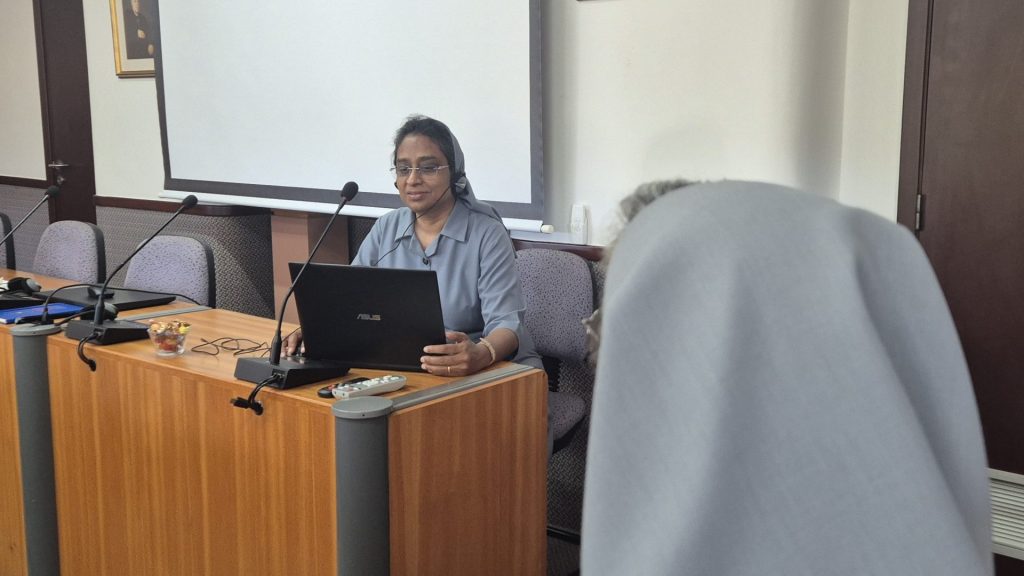
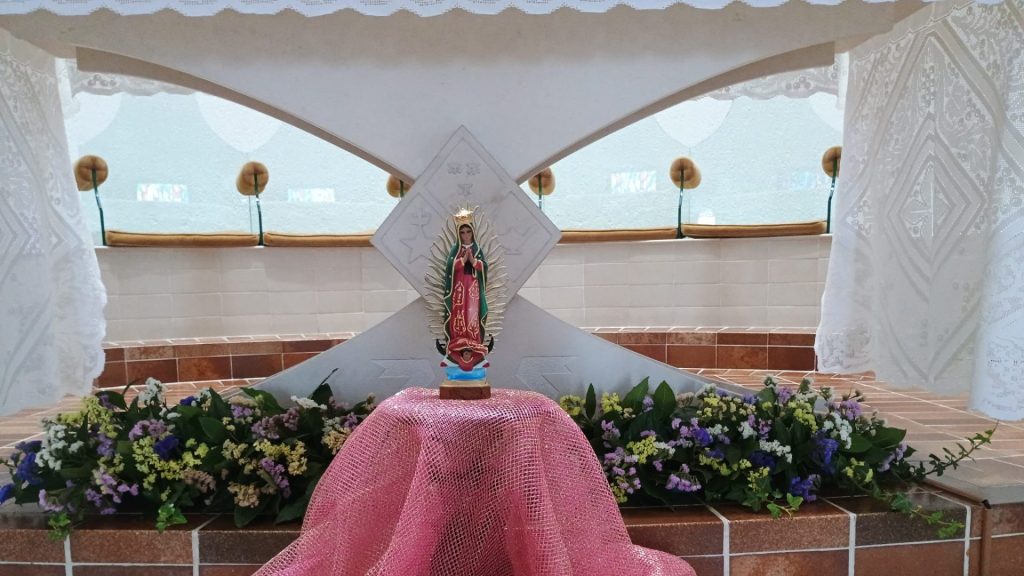
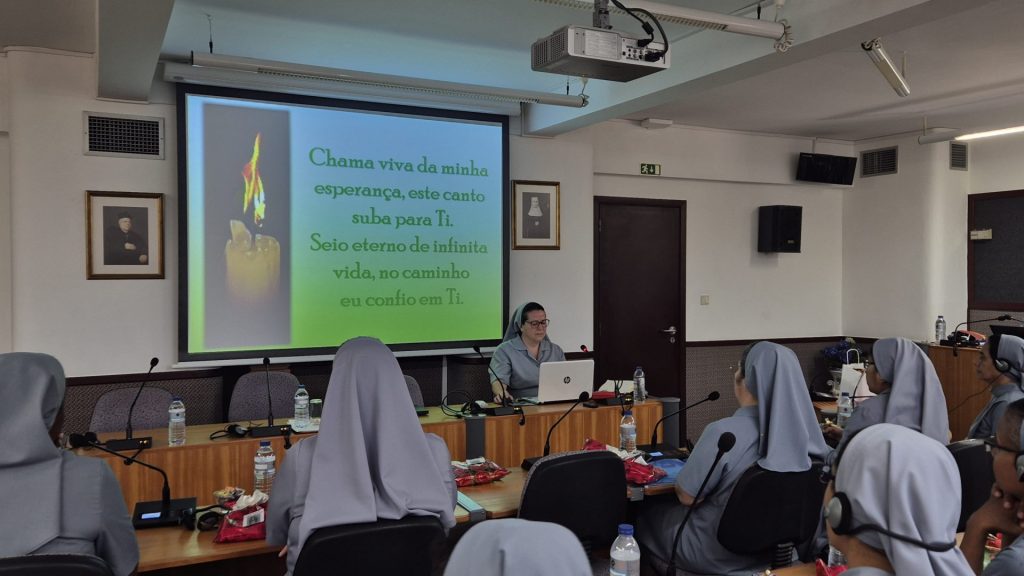
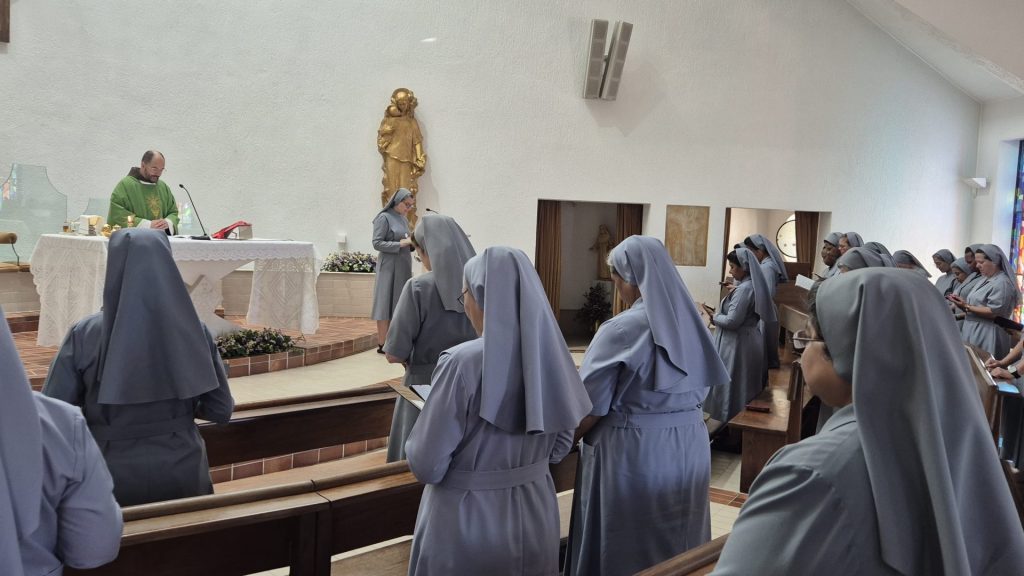
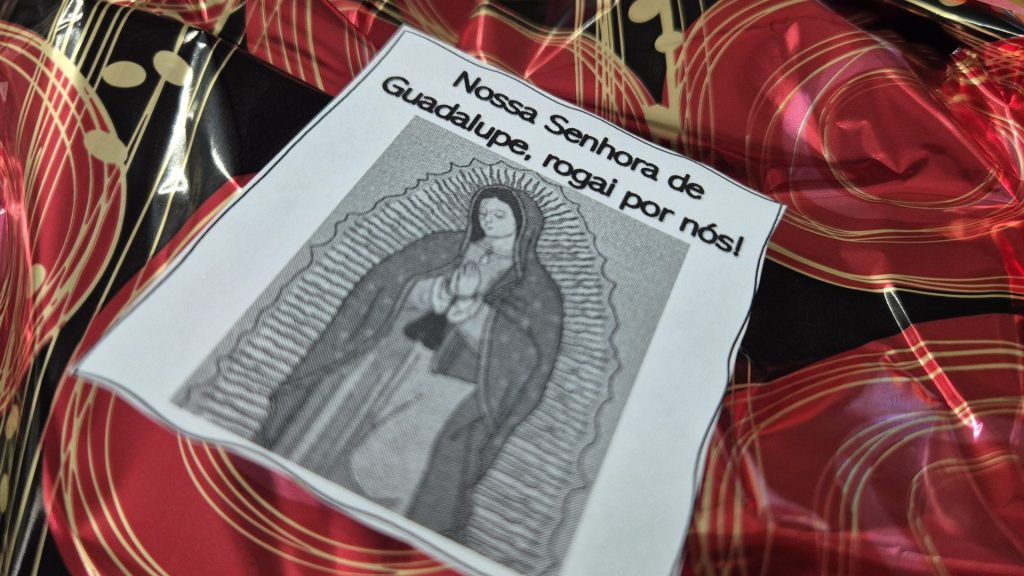

Unleavened bread was the first food of God’s people on their journey to the Promised Land—a symbol of the Bread of the Eucharist that we celebrate. Simple, made of flour and water, transformed into bread by fire.
For us, the Eucharist is the food that nourishes us as we journey towards the true Promised Land, which is Heaven. As St. Francis of Assisi said: here on earth we are all pilgrims and strangers, for the earth does not belong to us—it belongs to God. Our true homeland is with Him. And to reach it, we need this unleavened Bread, which is Jesus Himself.
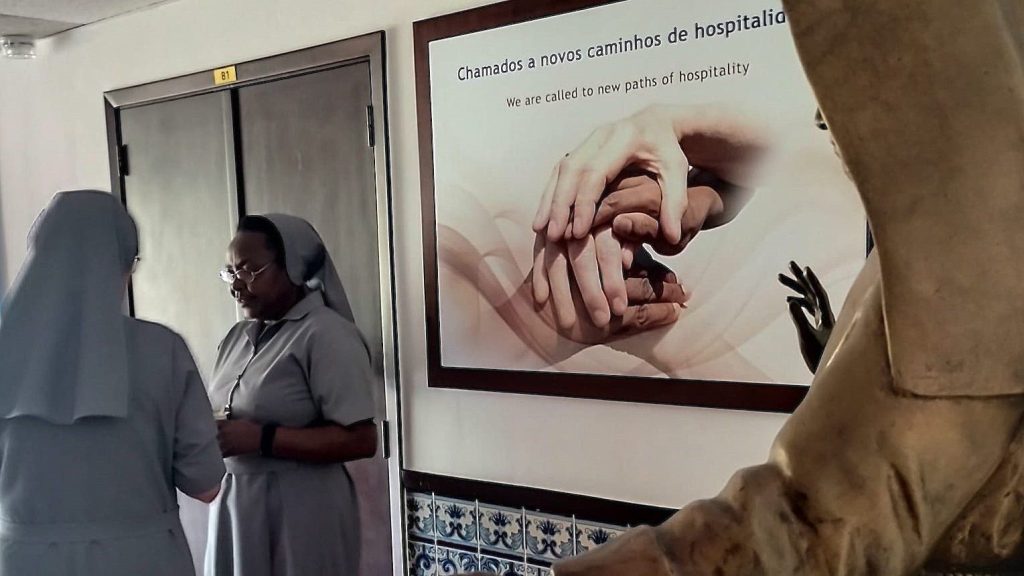
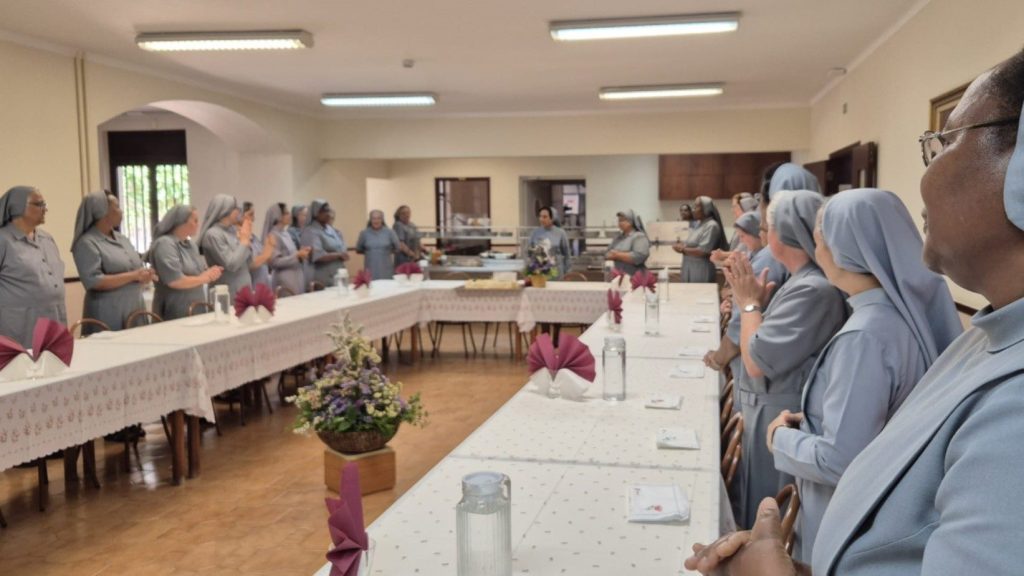
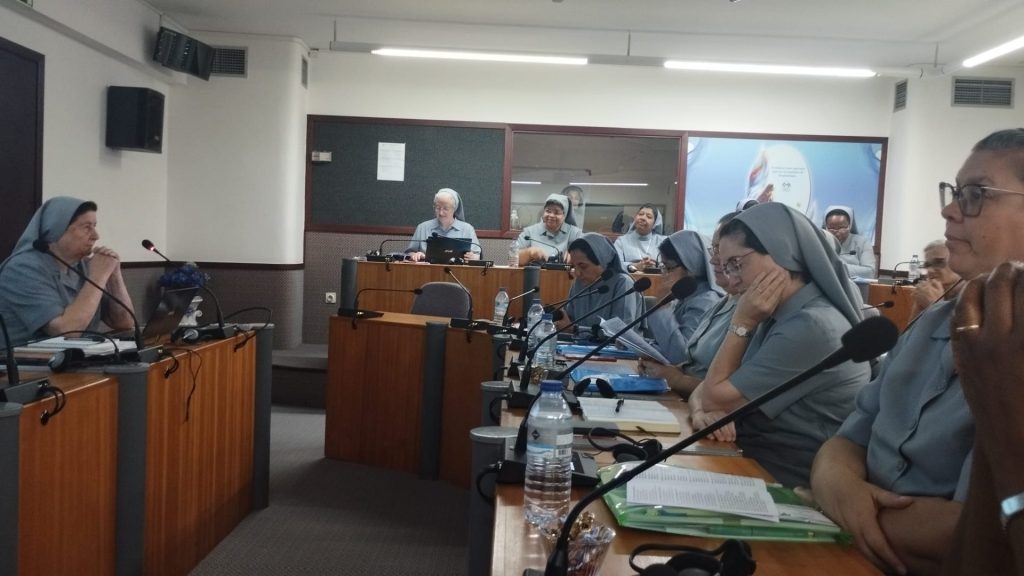
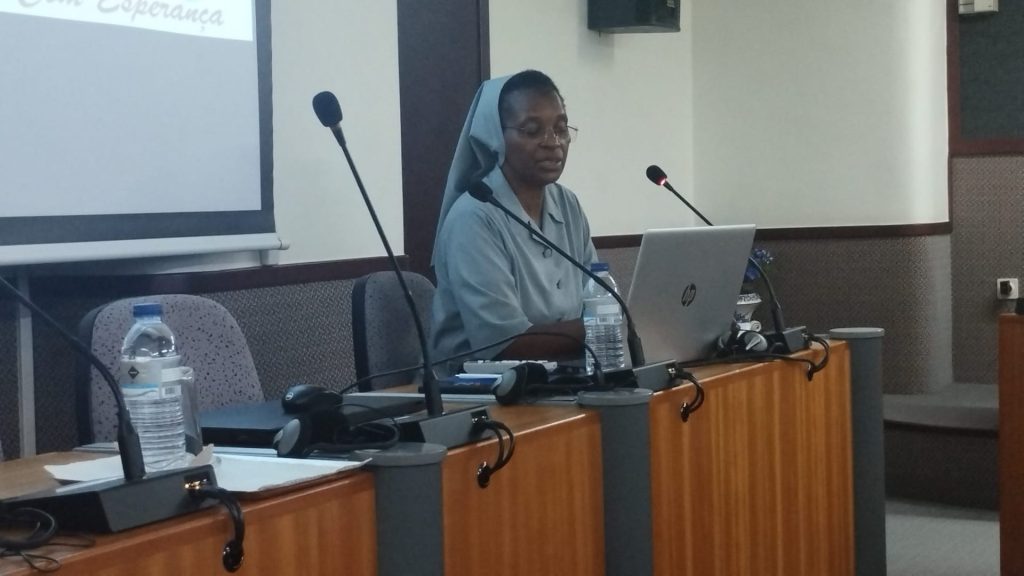
Today, we are called to be pilgrims of hope. The message that resounds strongly in this jubilee time is clear: “Do not let anyone steal your hope!”
May this word take root in our hearts and blossom into gestures of hospitality, tenderness, and faith.

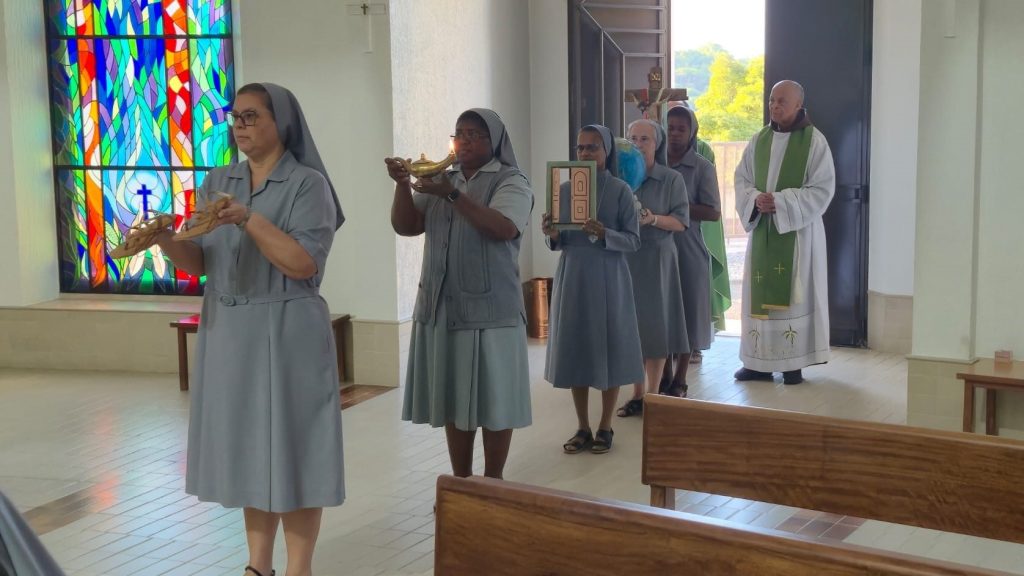
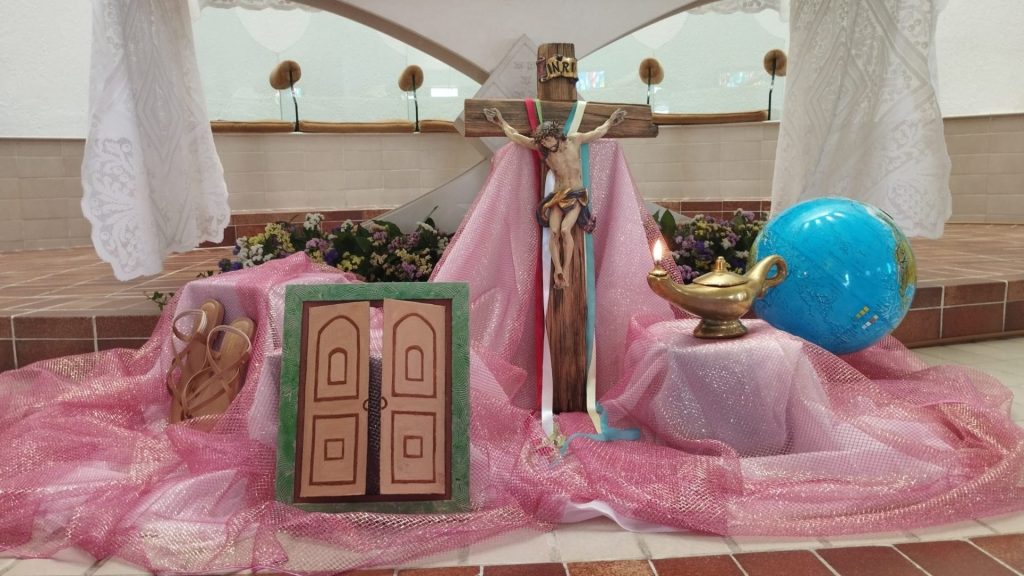

Turning to Jesus is both the secret and the way. He is the Master of the soul, the One who gently yet firmly teaches us the lessons that transform. Every word of His is a seed, every gesture a light. And when we let Him guide our steps, everything within us takes on new meaning.
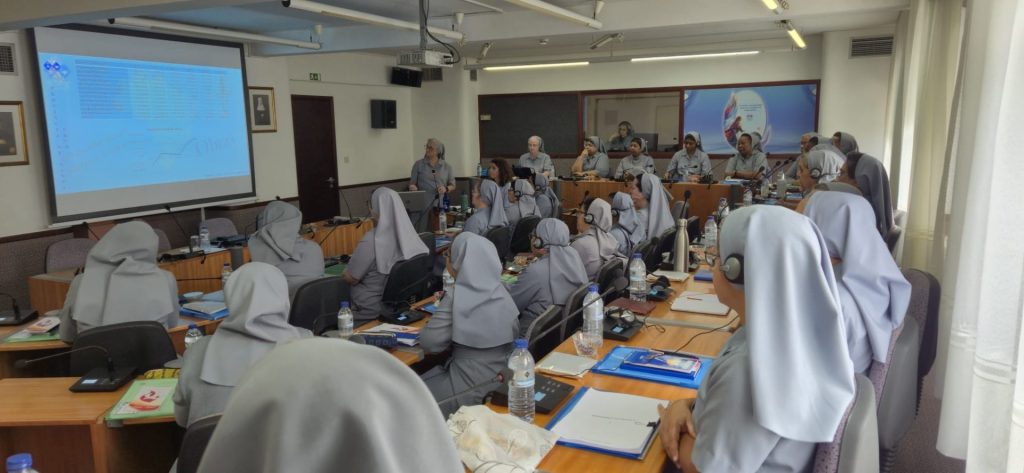
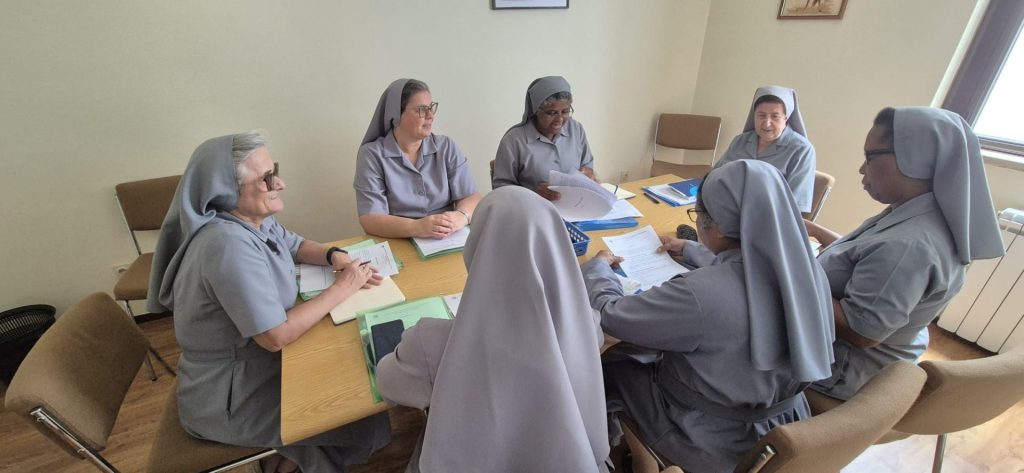
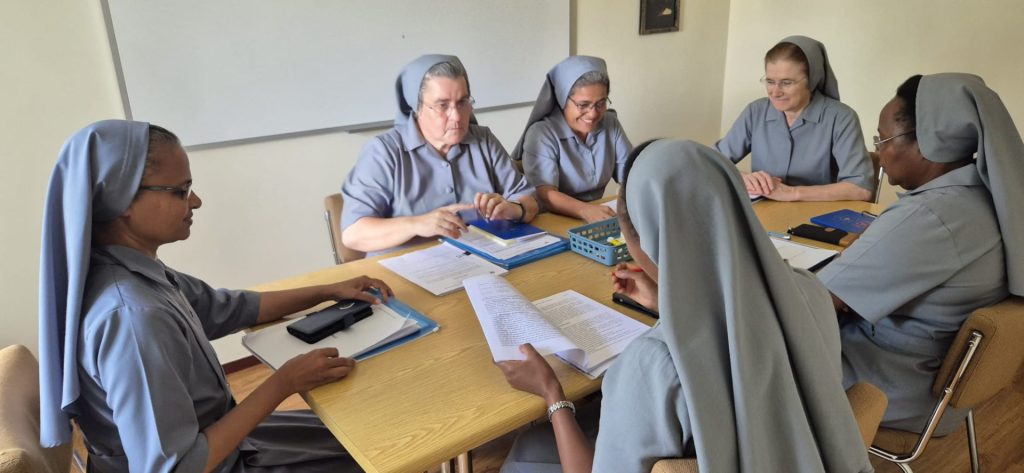
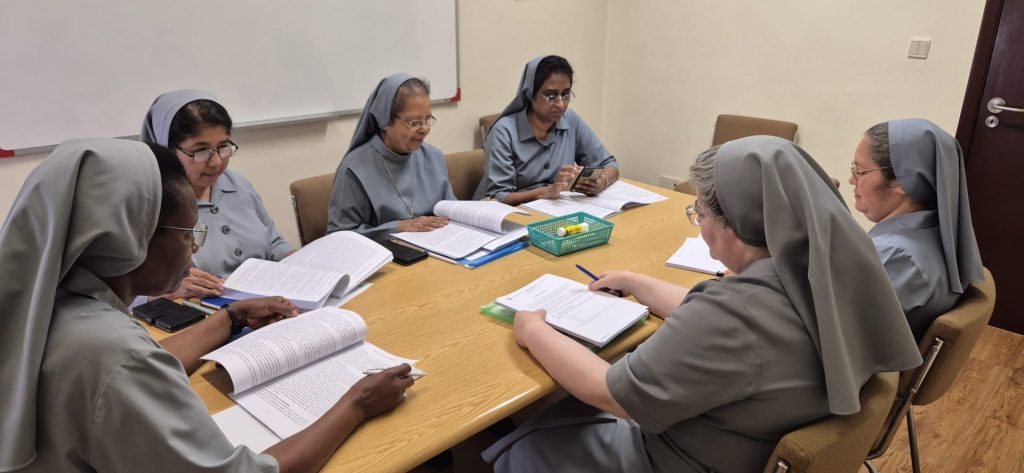
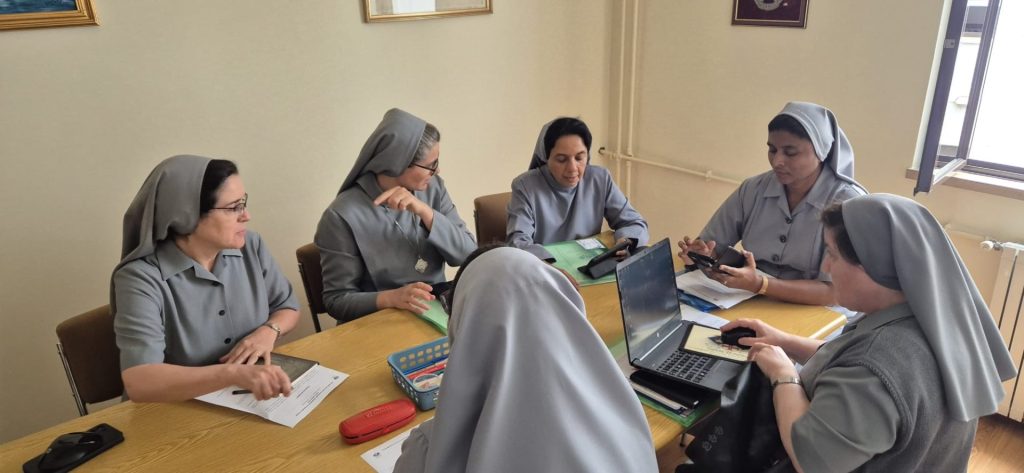
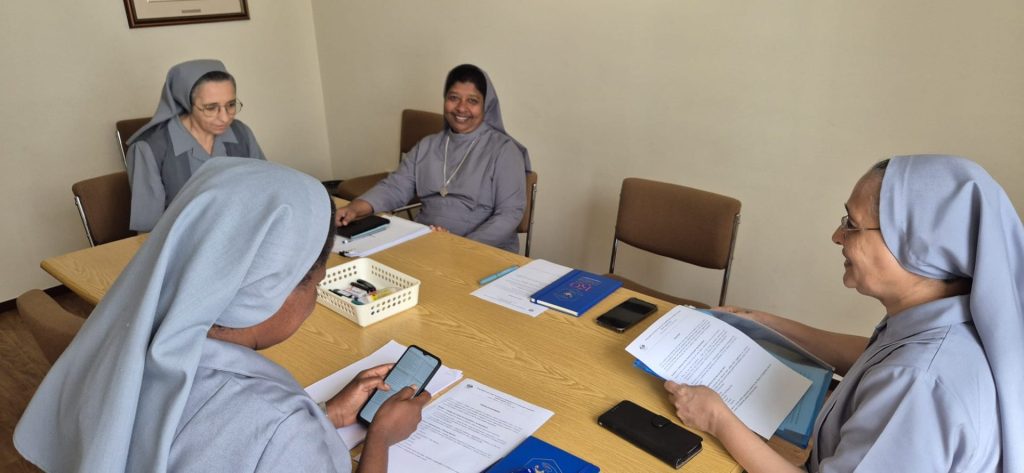
To show Jesus requires more than good intentions.
It calls for deep prayer, silent sacrifice, and genuine service. Like the grain of wheat that must die to bear fruit, we are called to a true self-giving—not a life of appearances, but a life of the cross embraced and love incarnate.
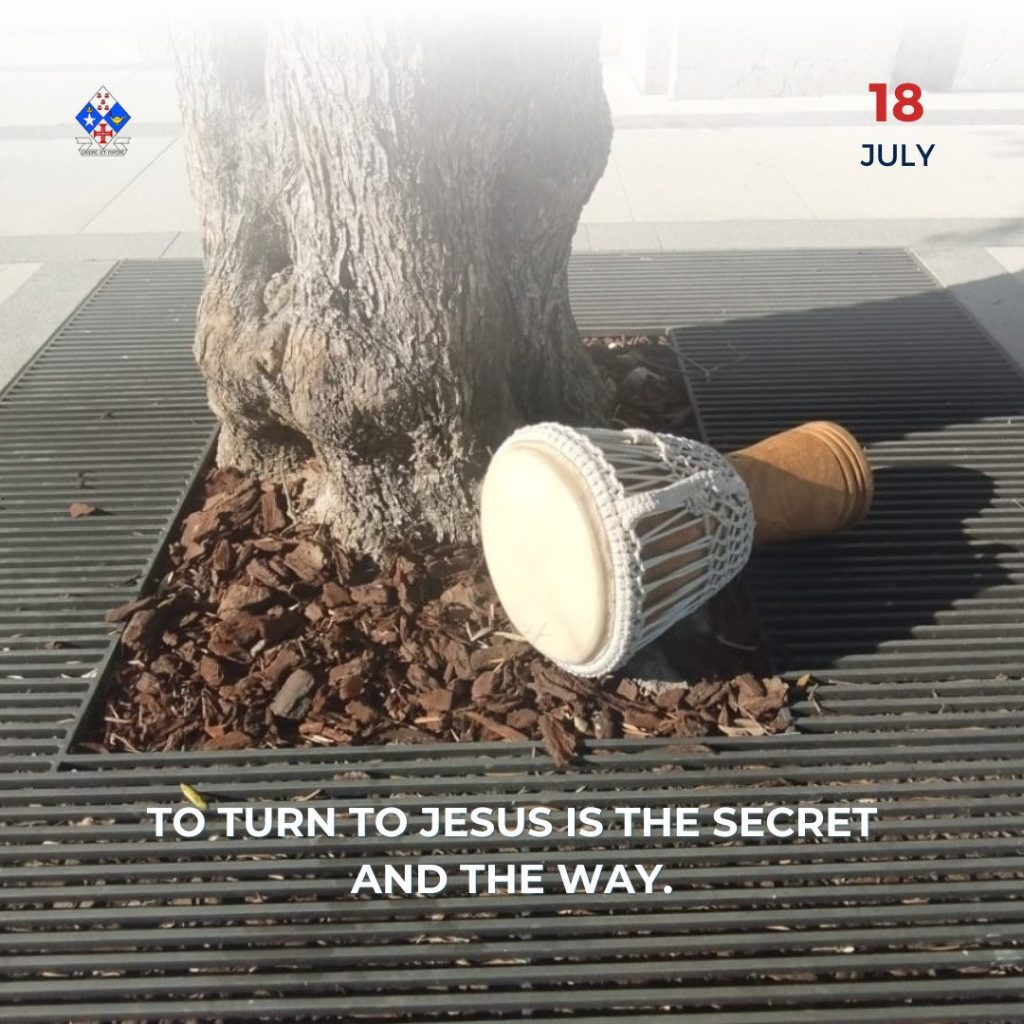
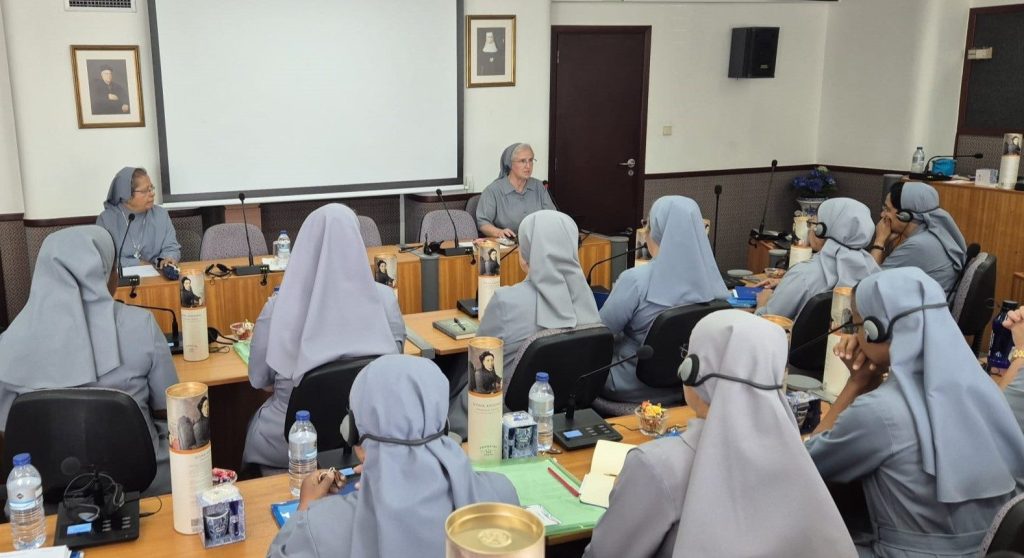
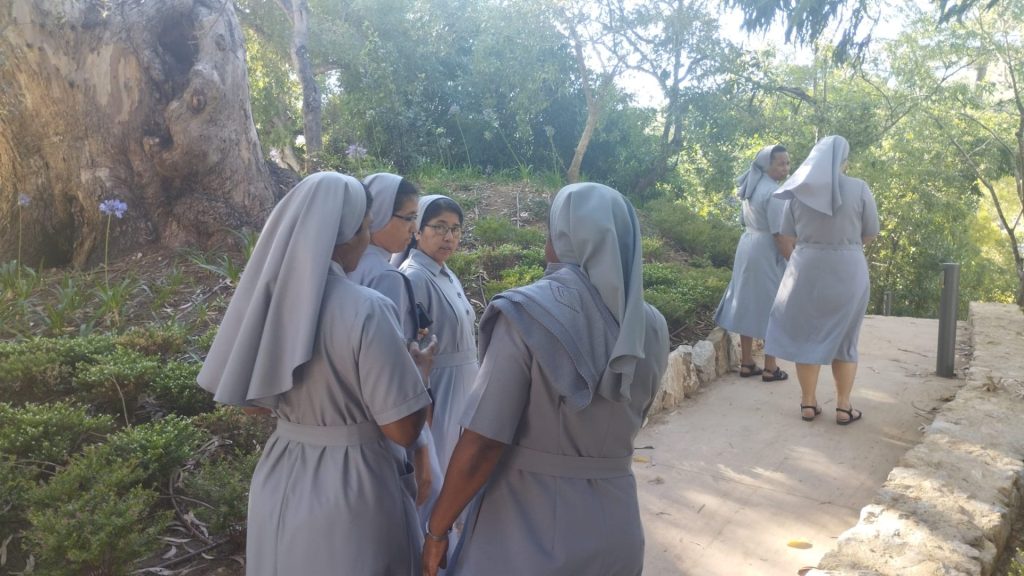
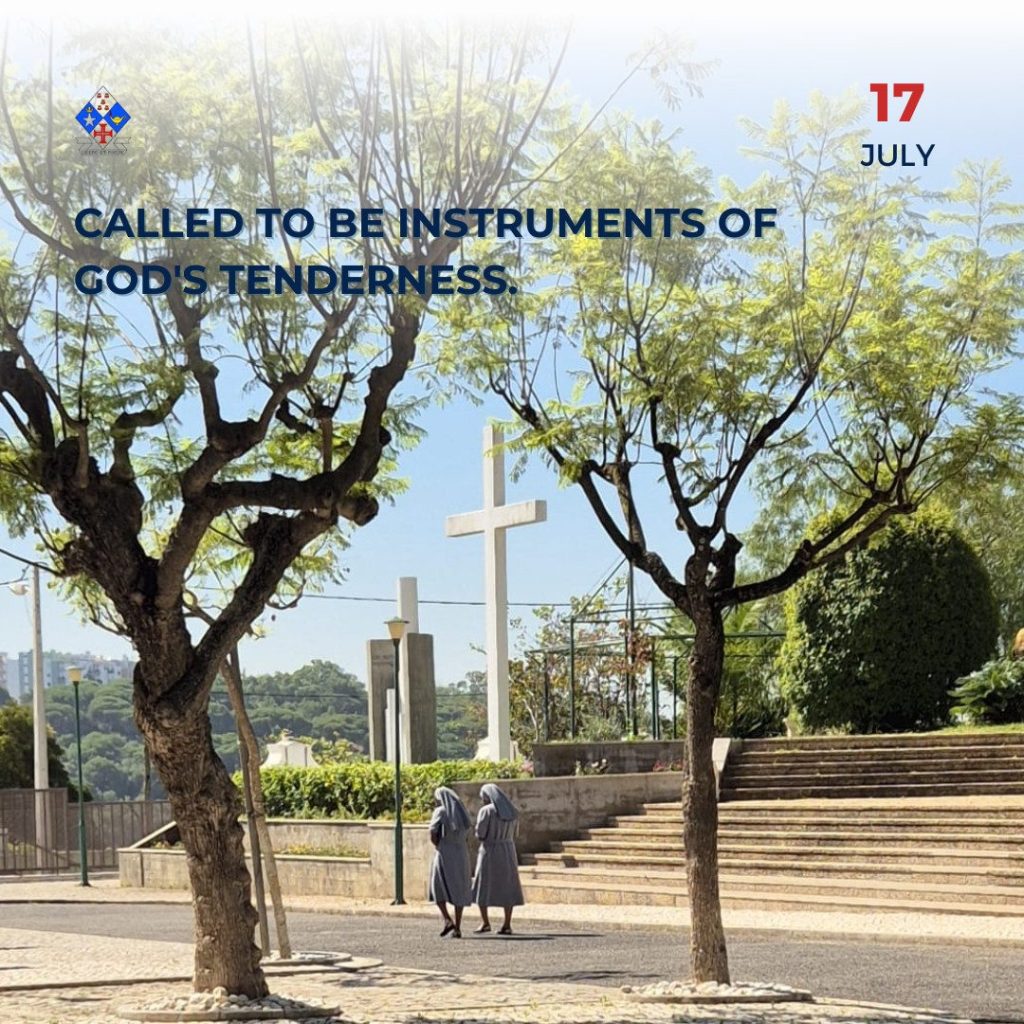
As the days of retreat came to an end, we went on pilgrimage with Mary, the woman deeply in love with God, from the Annunciation to Pentecost, from Bethlehem to Calvary, in the faithful following of her Son Jesus.
Thus, we journeyed under the light of her maternal and watchful gaze, as in Cana.
Mary knows our needs, she knows our hearts, and, immersed in the mission of the Son, she attentively accompanies our lives.
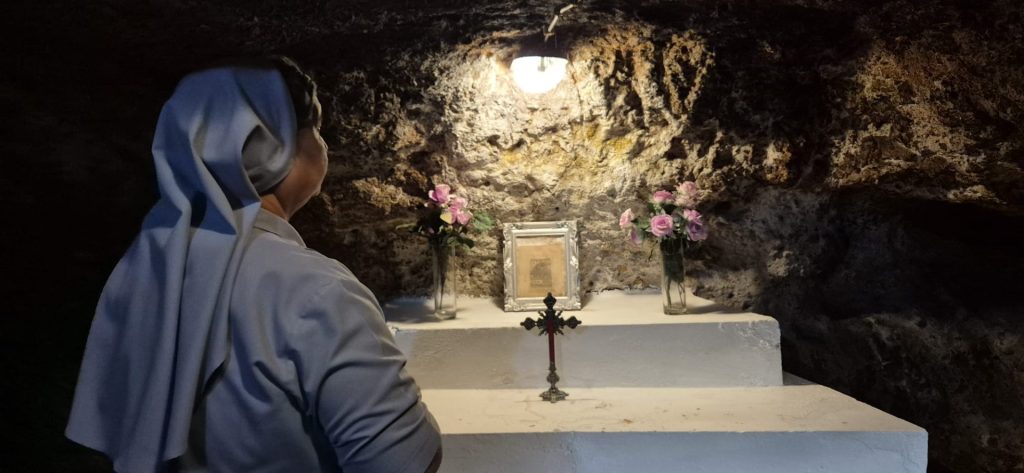
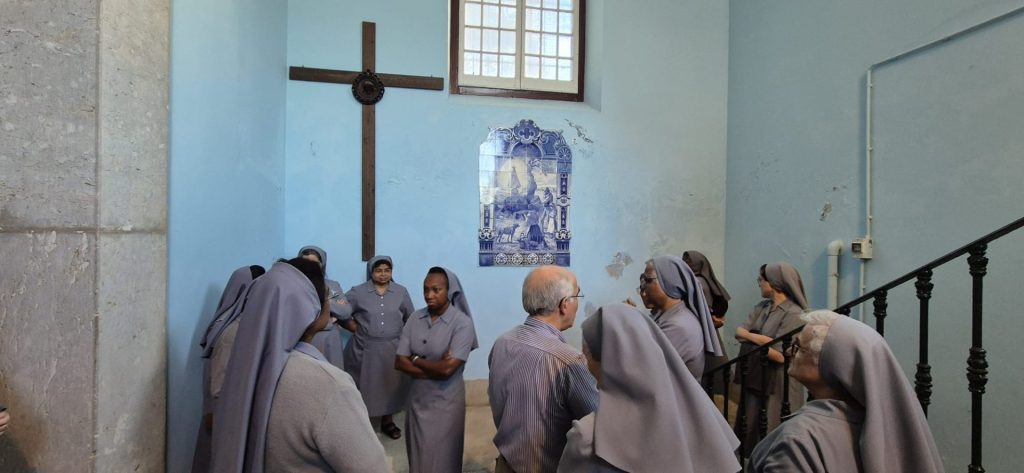
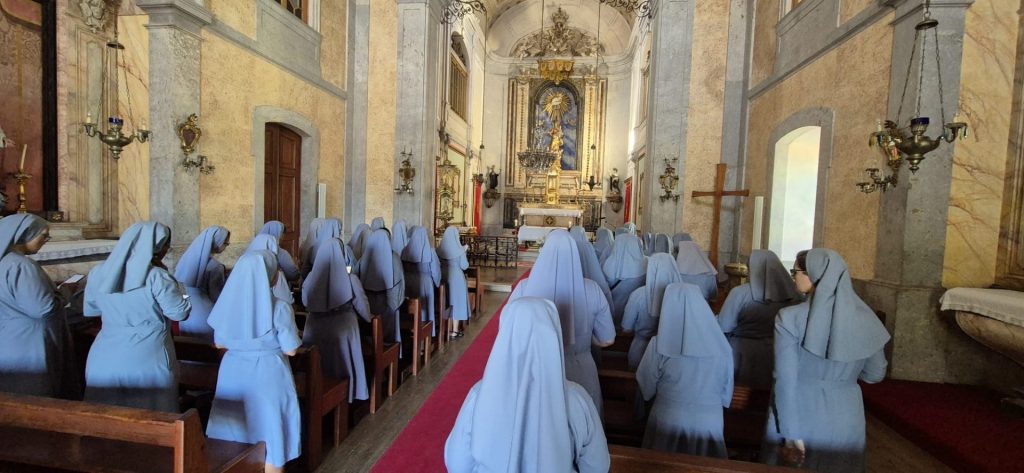
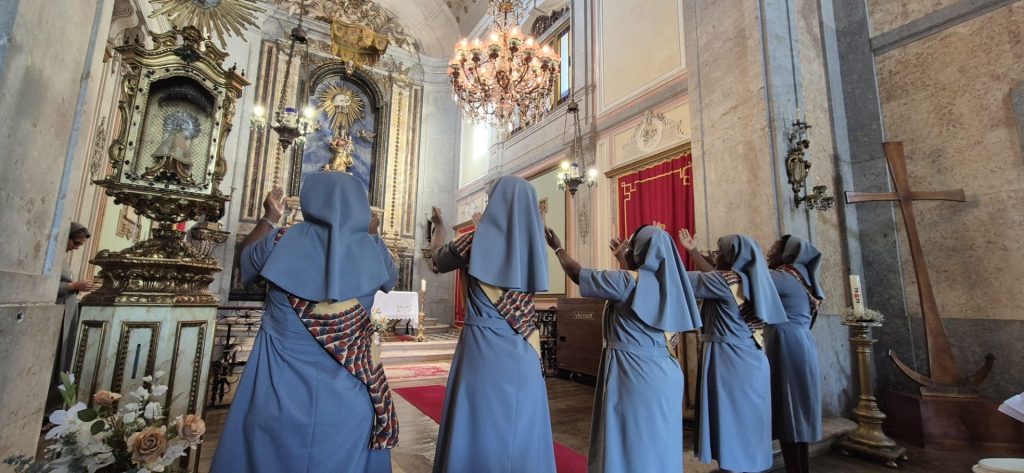
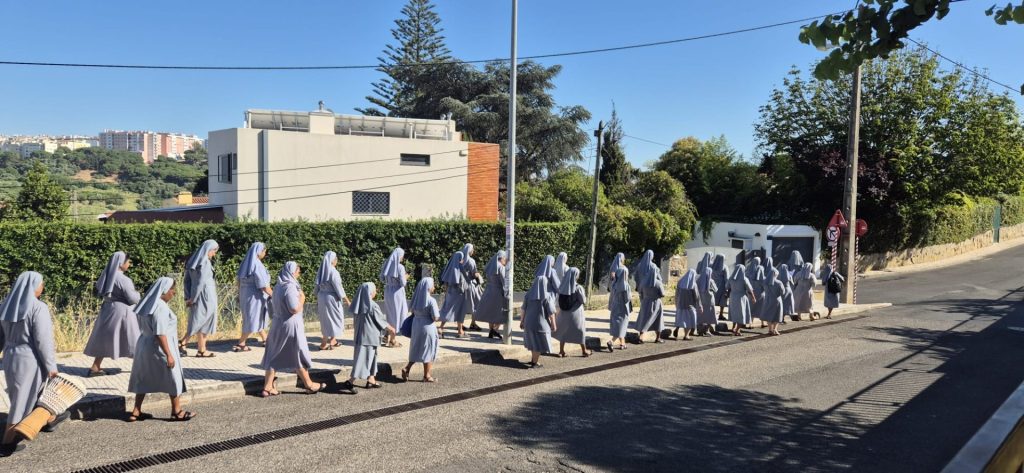
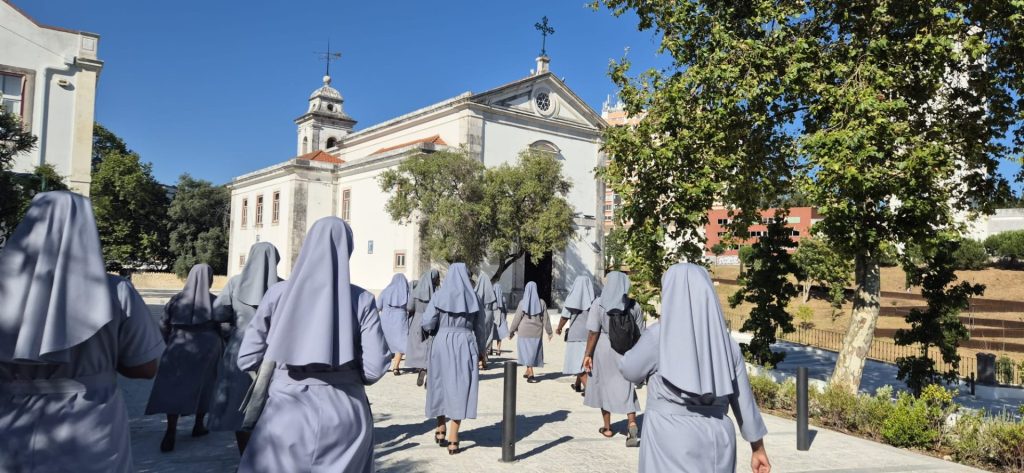
And we need courage to face the facts before us with honesty and with faith. And a deep trust that God is still writing the next chapter of the story of our Congregation.
In every place where we serve, we will see both the fragility and the beauty of life. We will hear the Holy Spirit speak in the language of many cultures and the witness of many Sisters. Our responsibility is to blend what we observe and listen to, think globally, and act with vision and resolve.

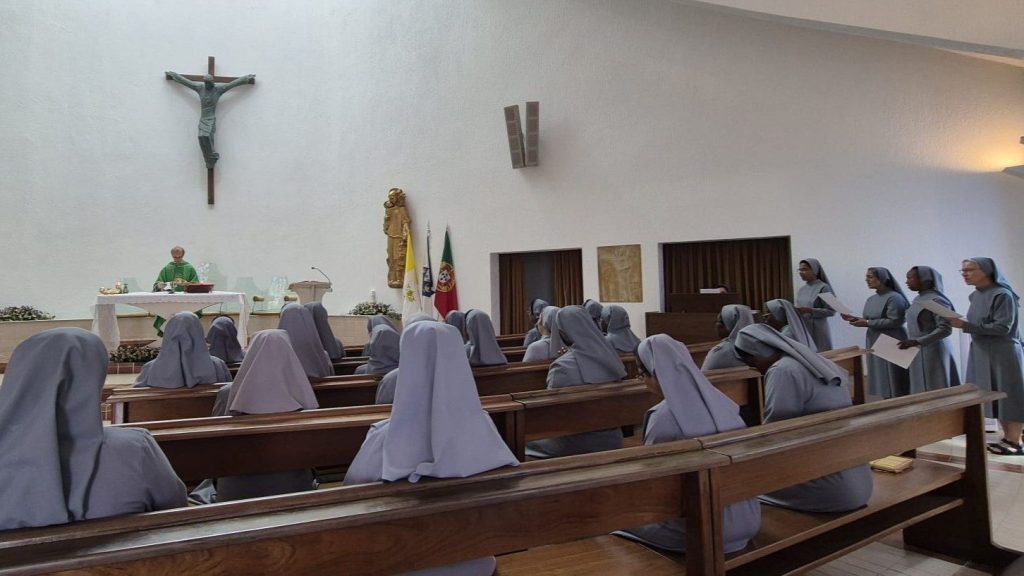
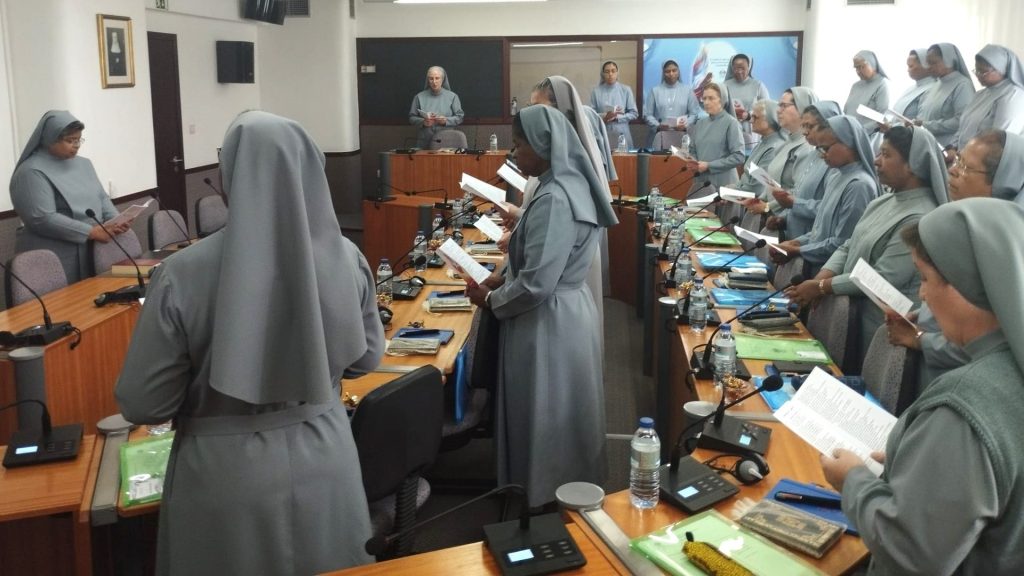

Every new chapter, whether in the story of a book or the journey of life, begins with the turning of a page. Today, we turn such a page in the unfolding story of our Congregation. And inscribed across the heading of this new chapter is our call and conviction: “Rise up with Hope, to new paths of Hospitality.”
Opening message, Superior General


